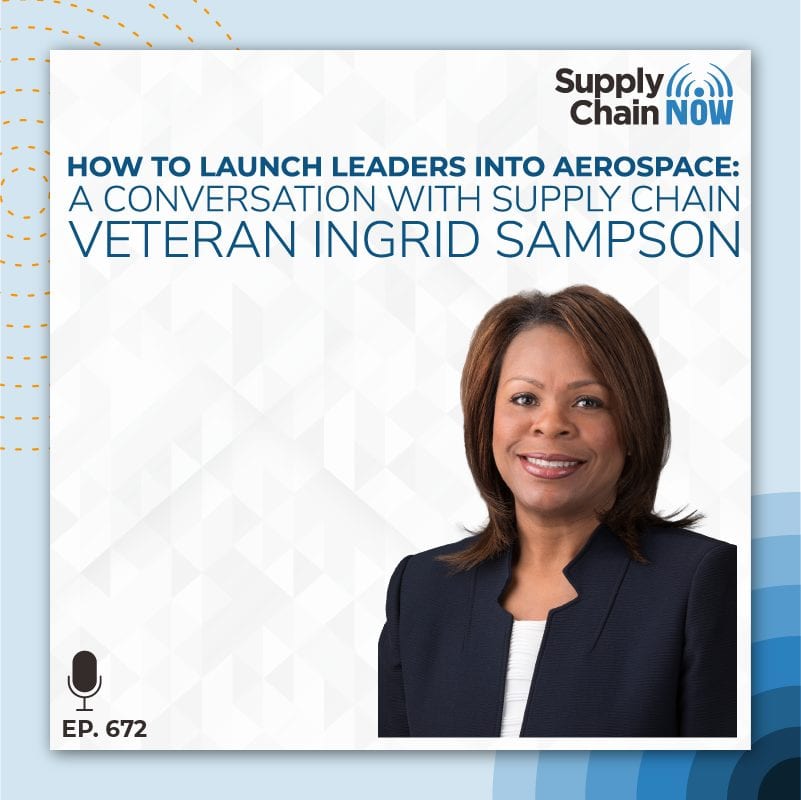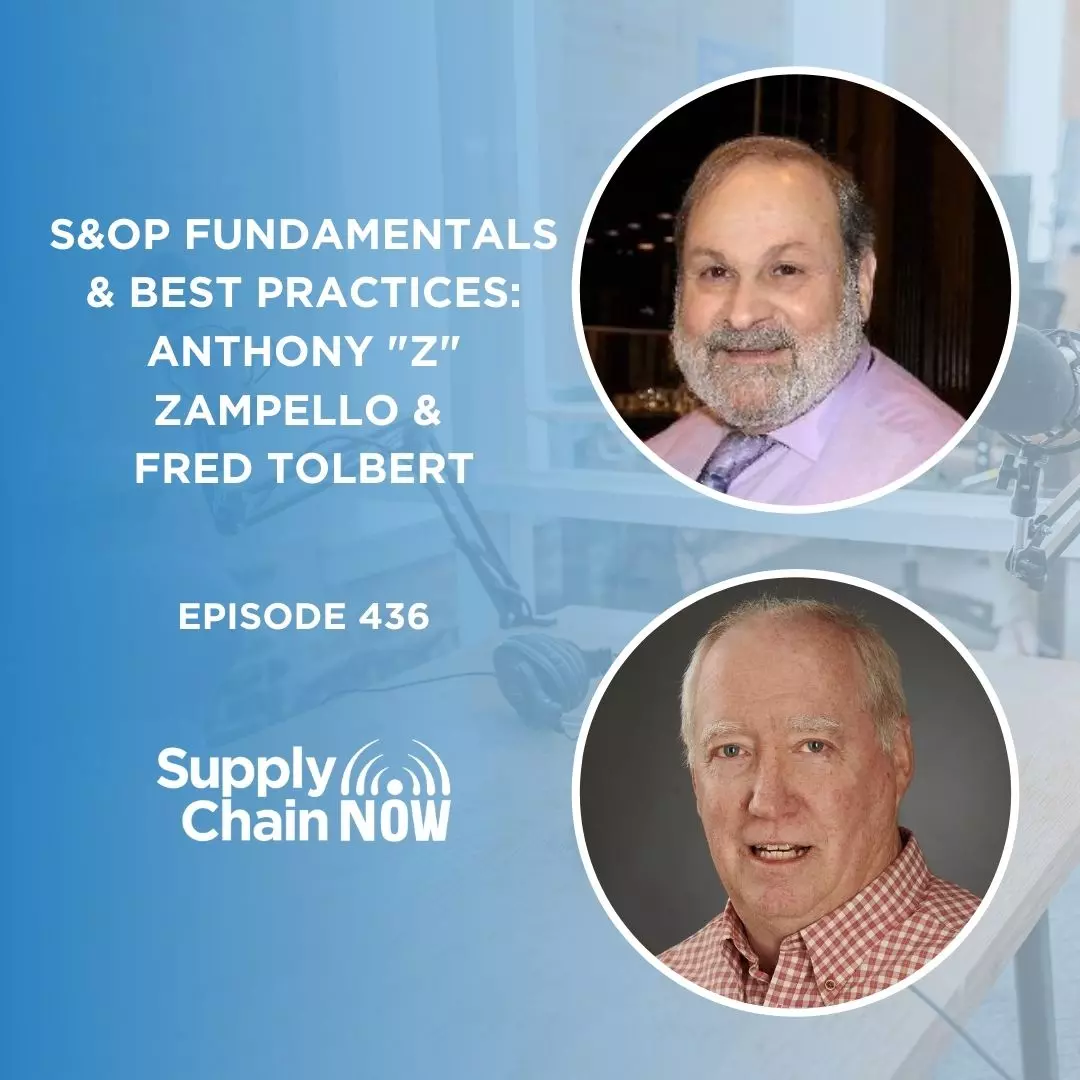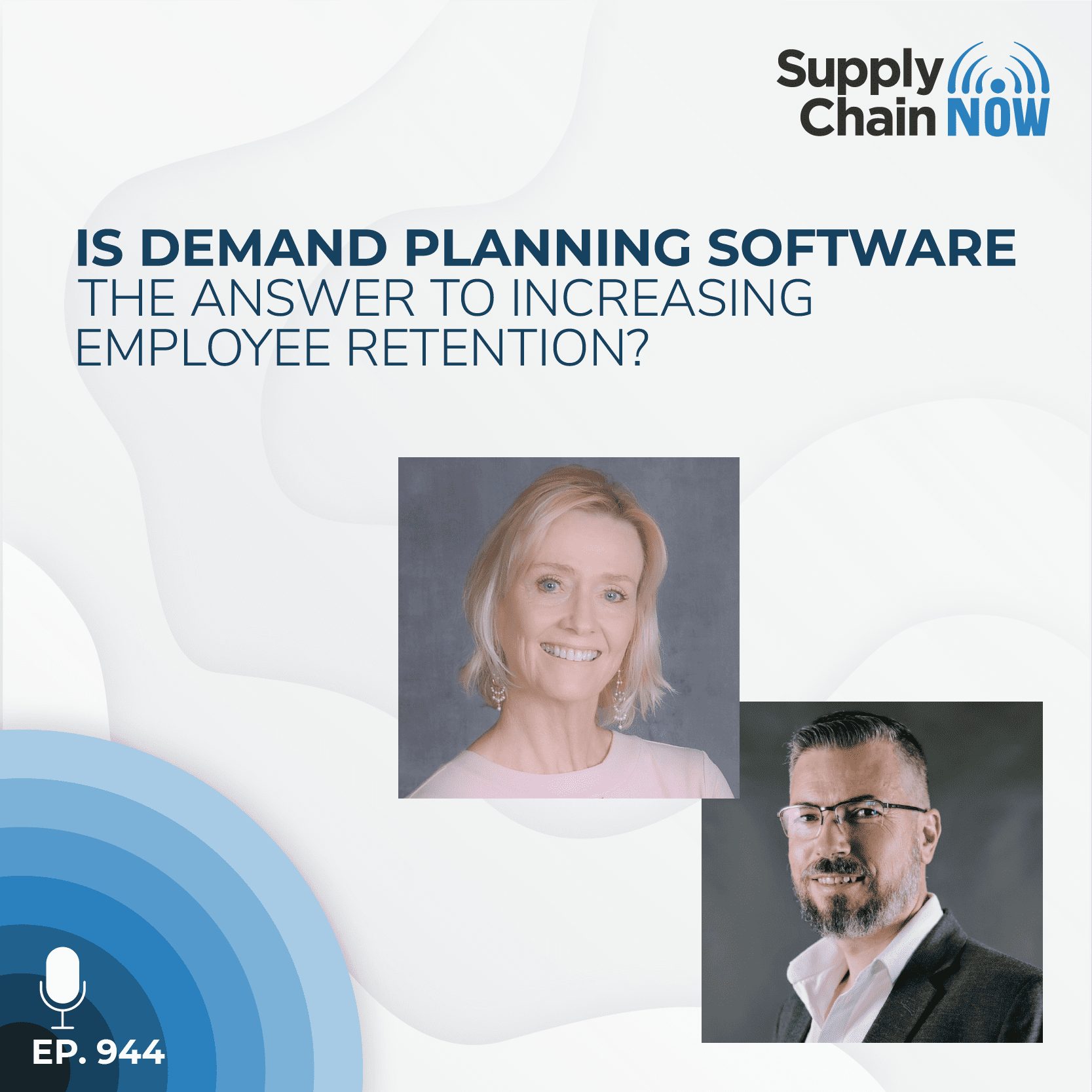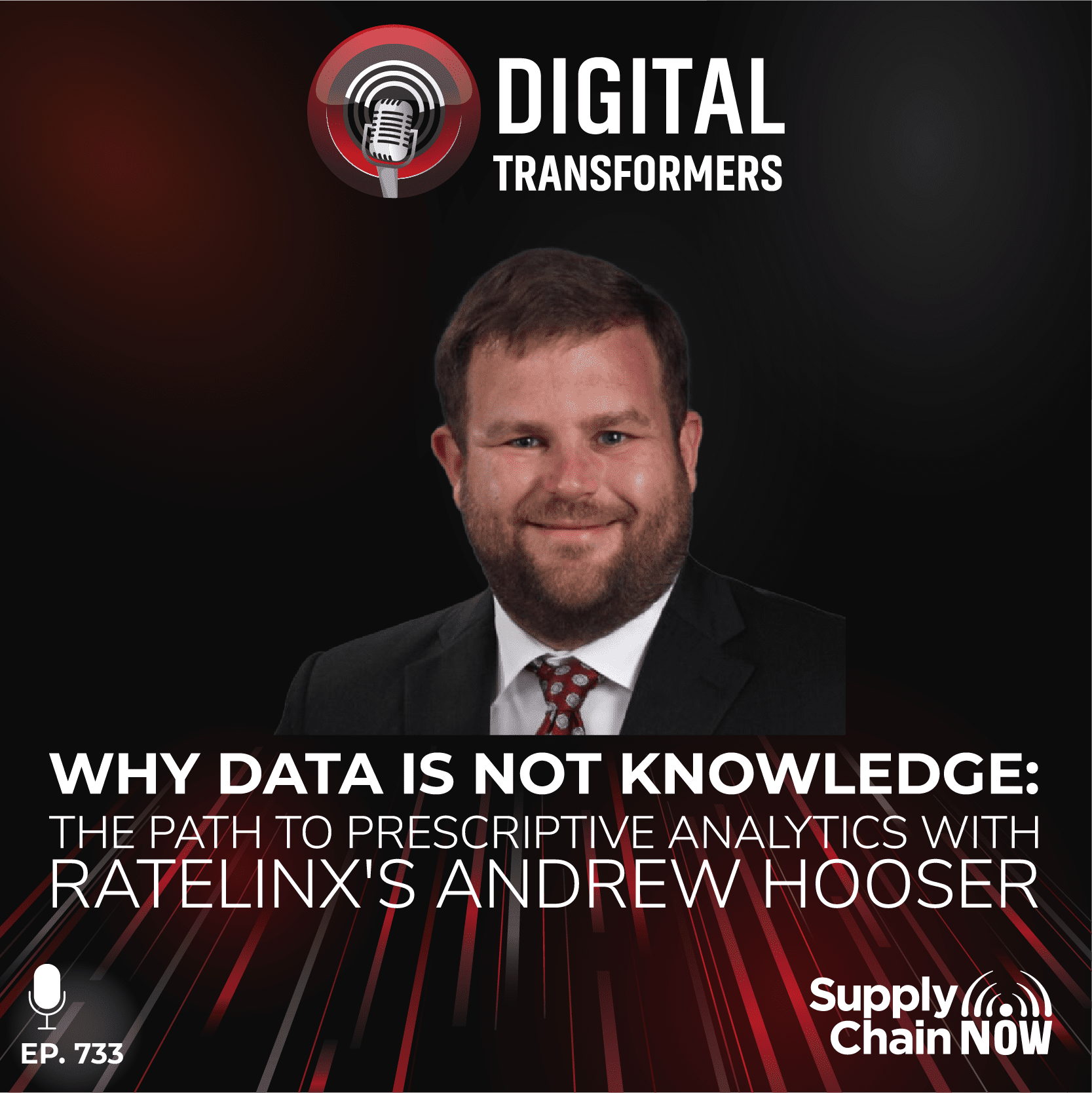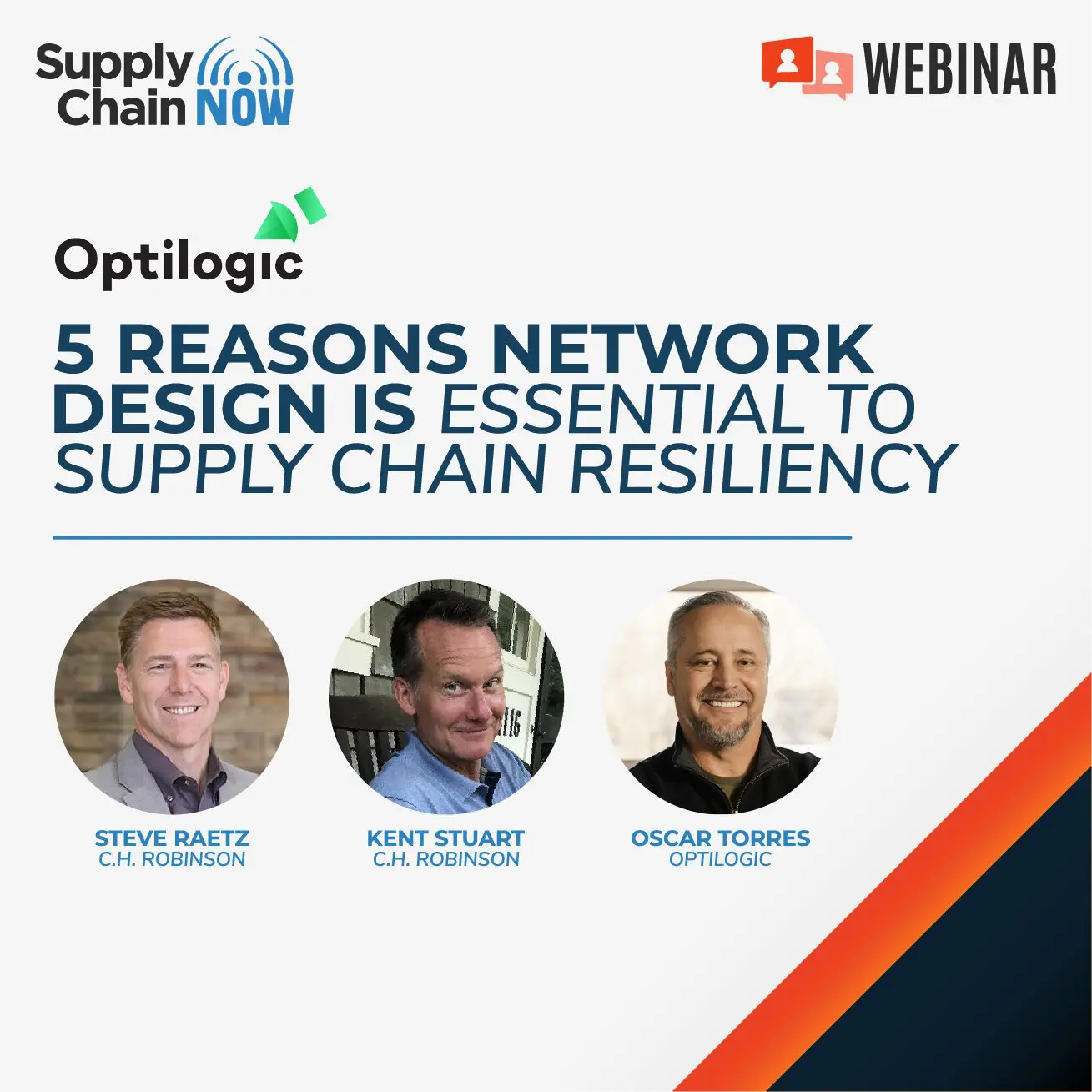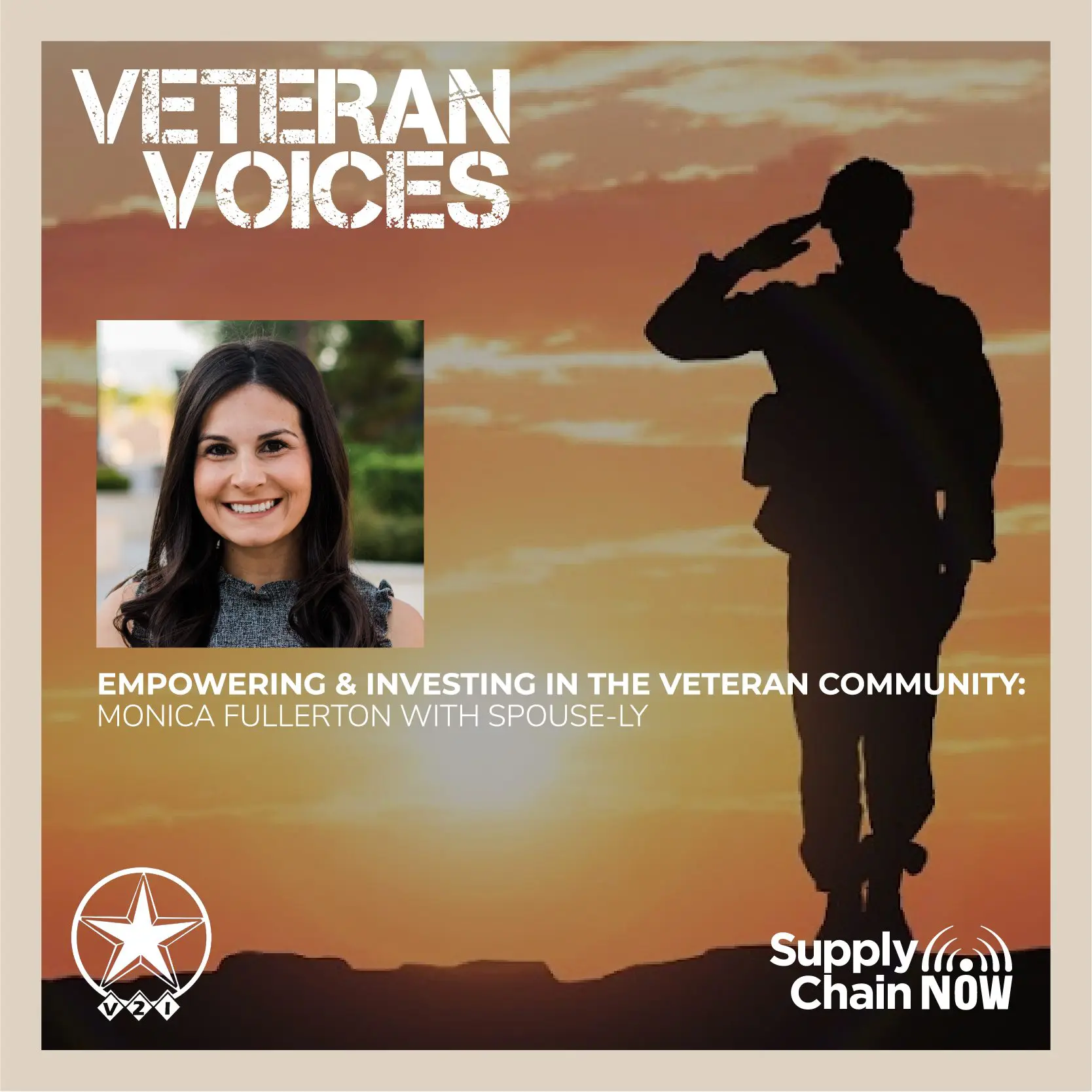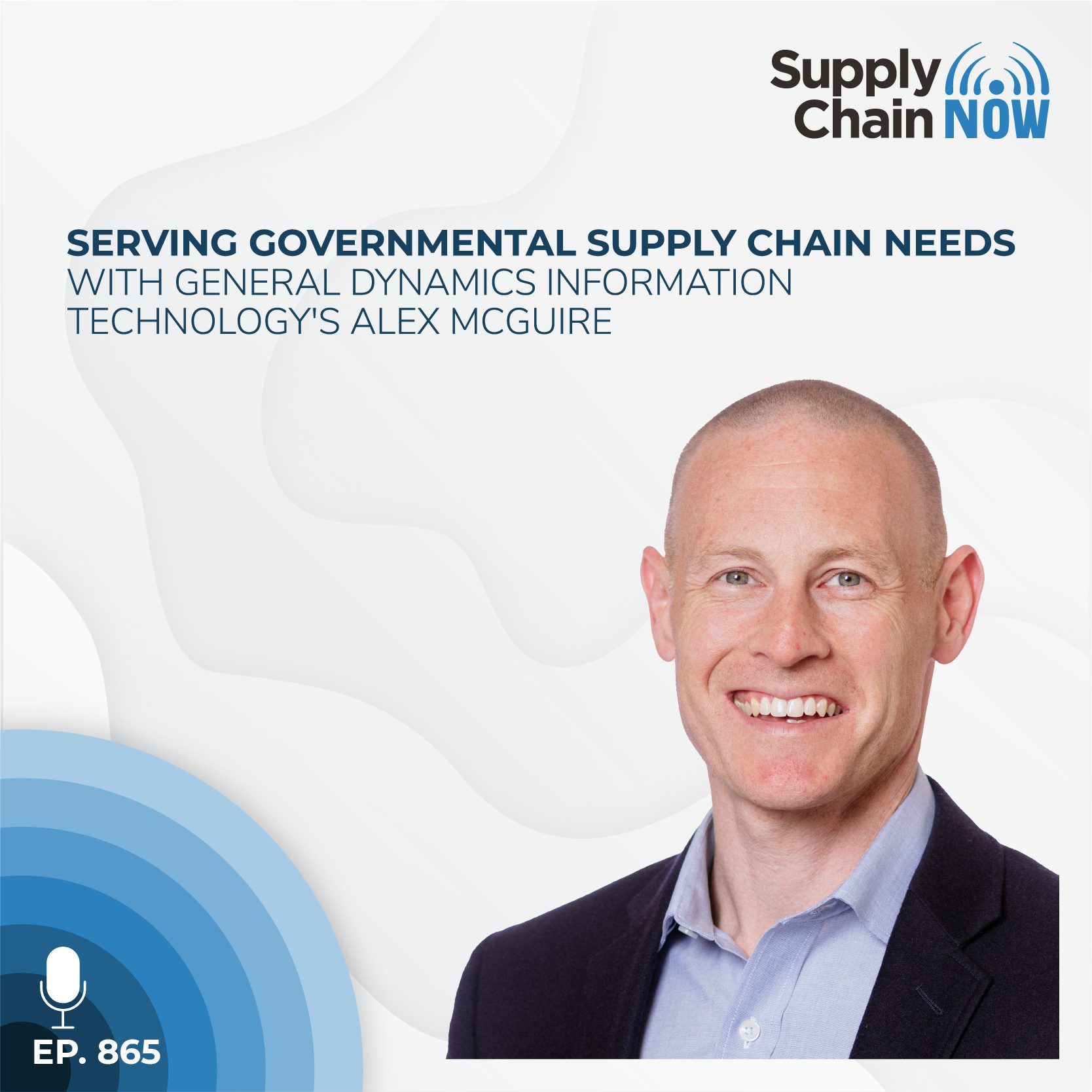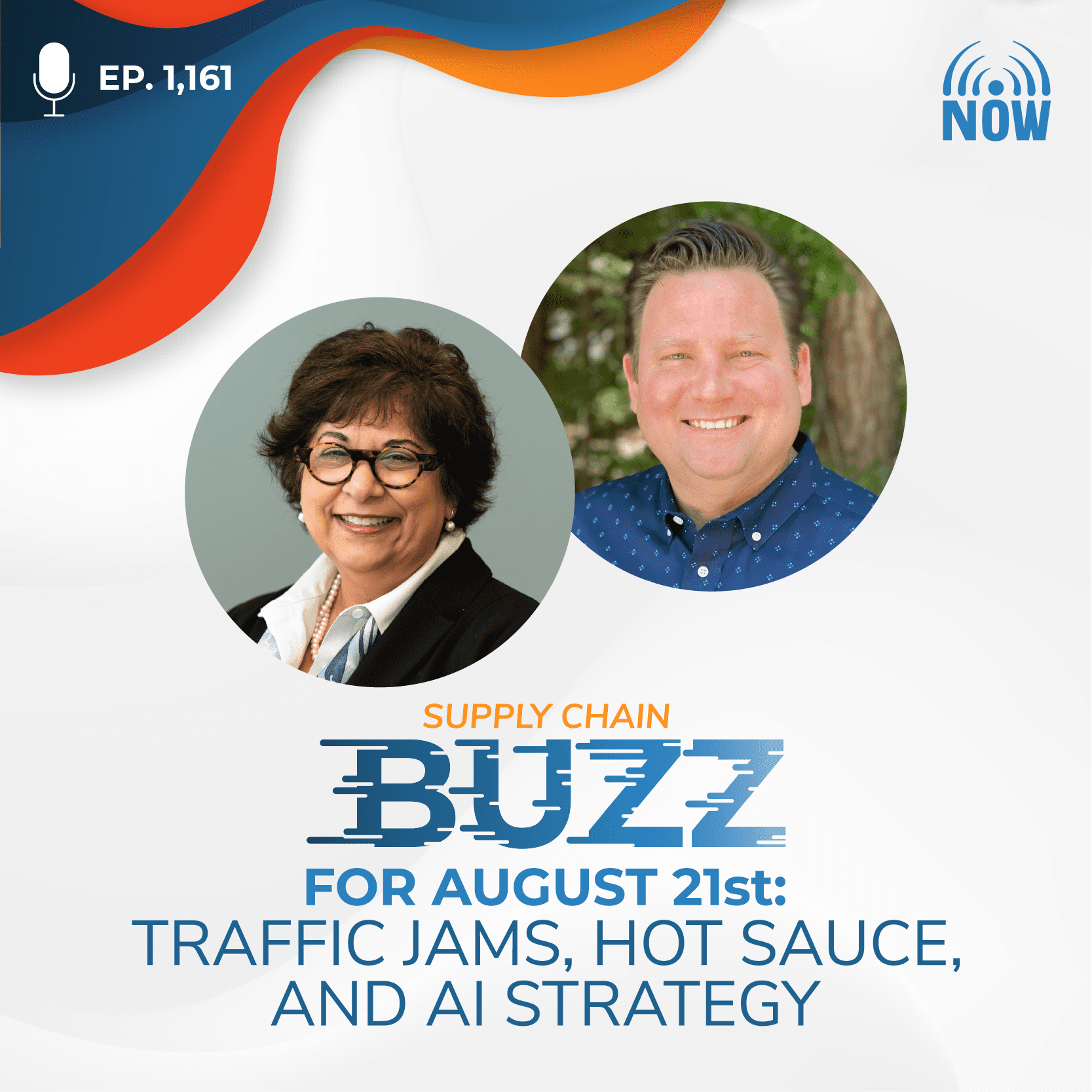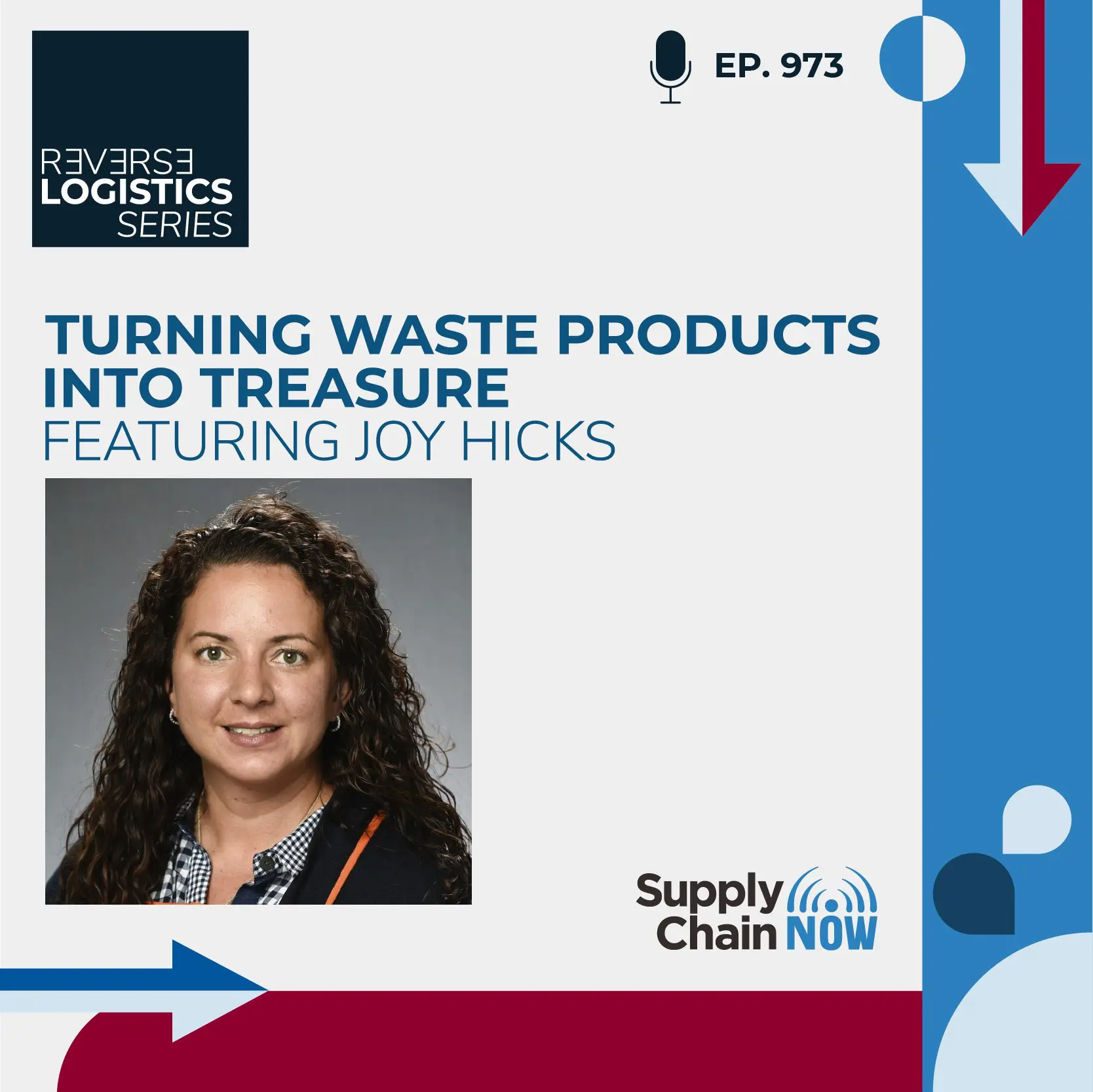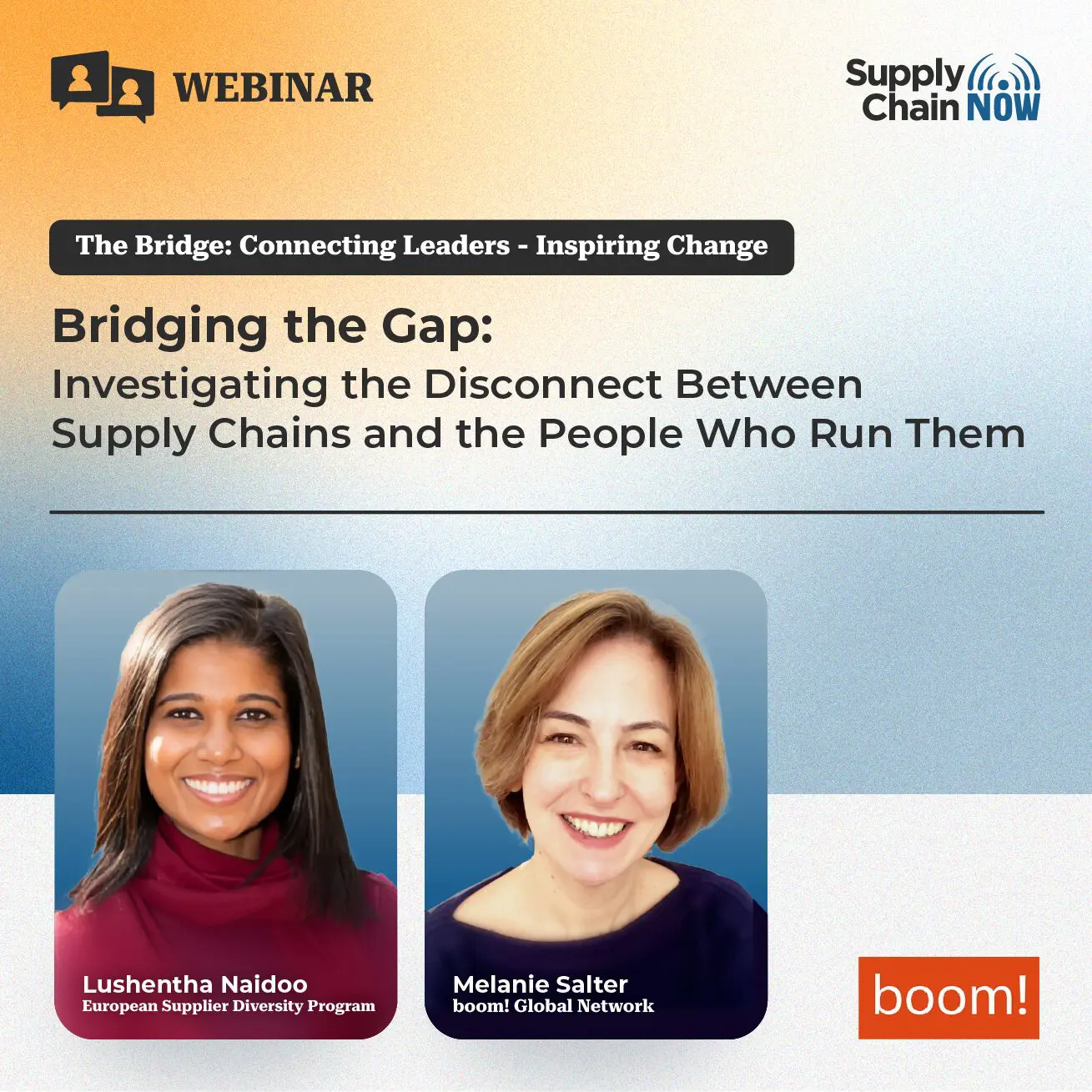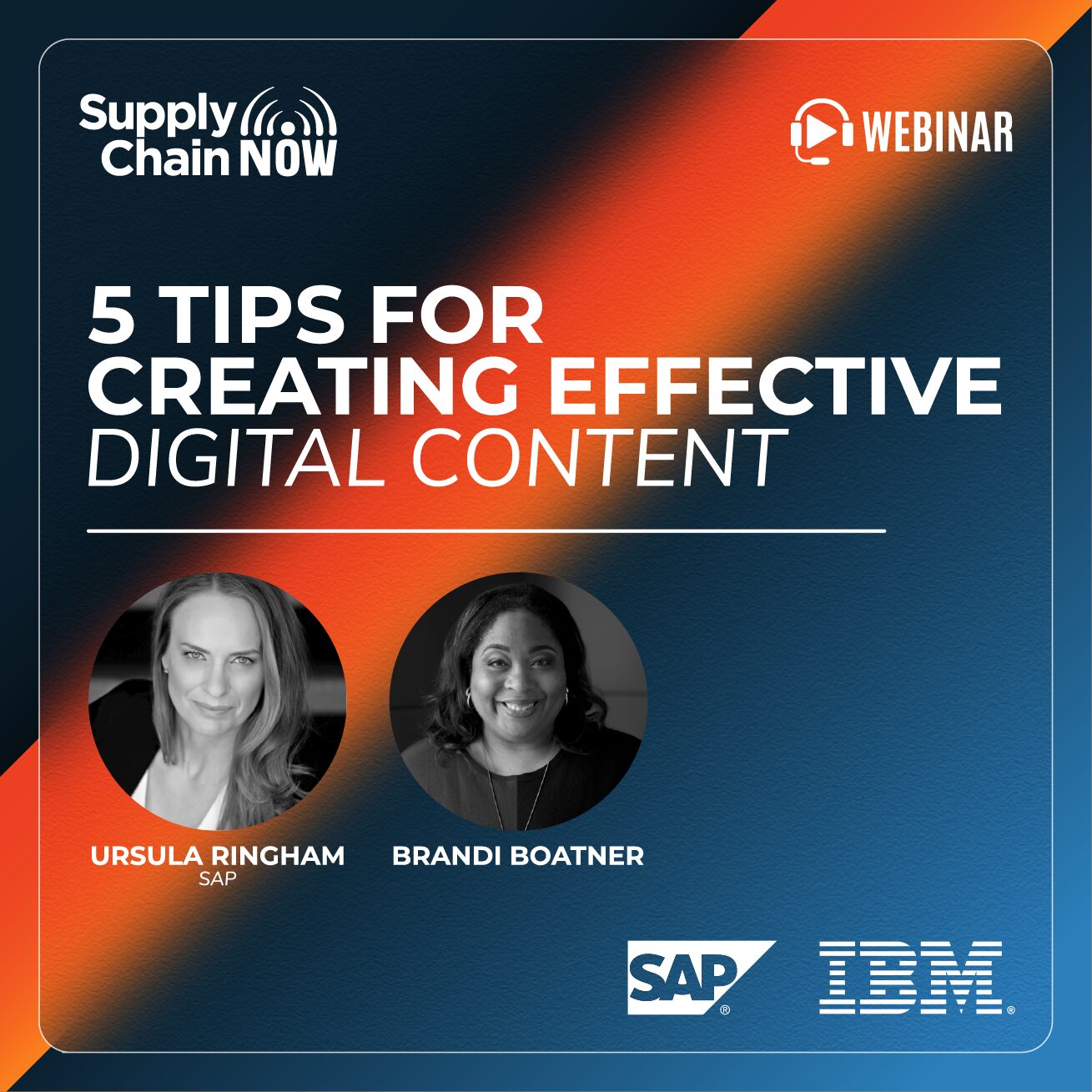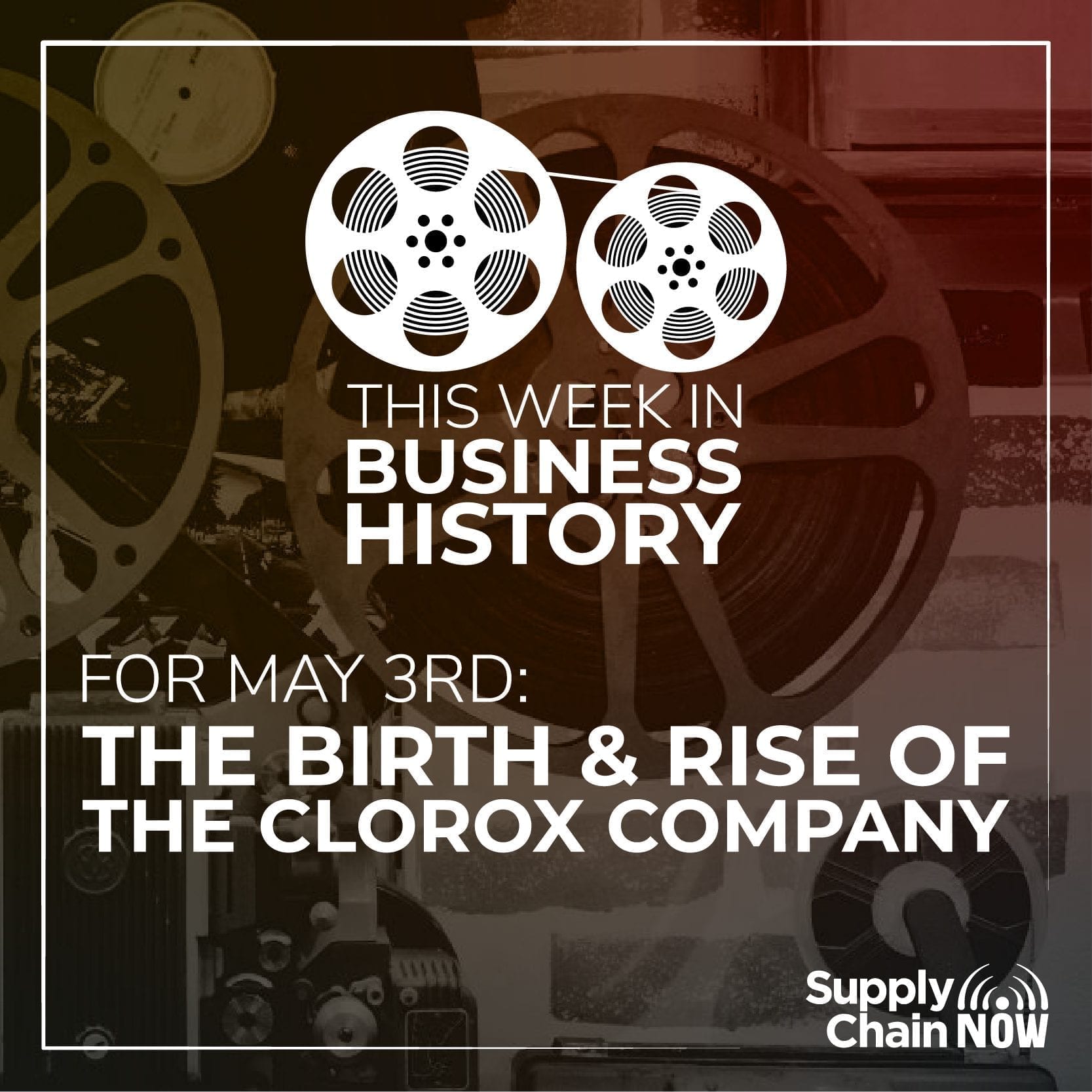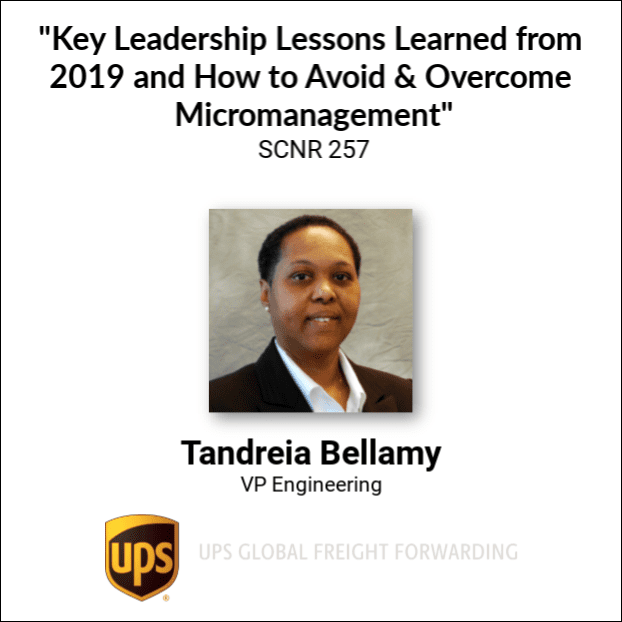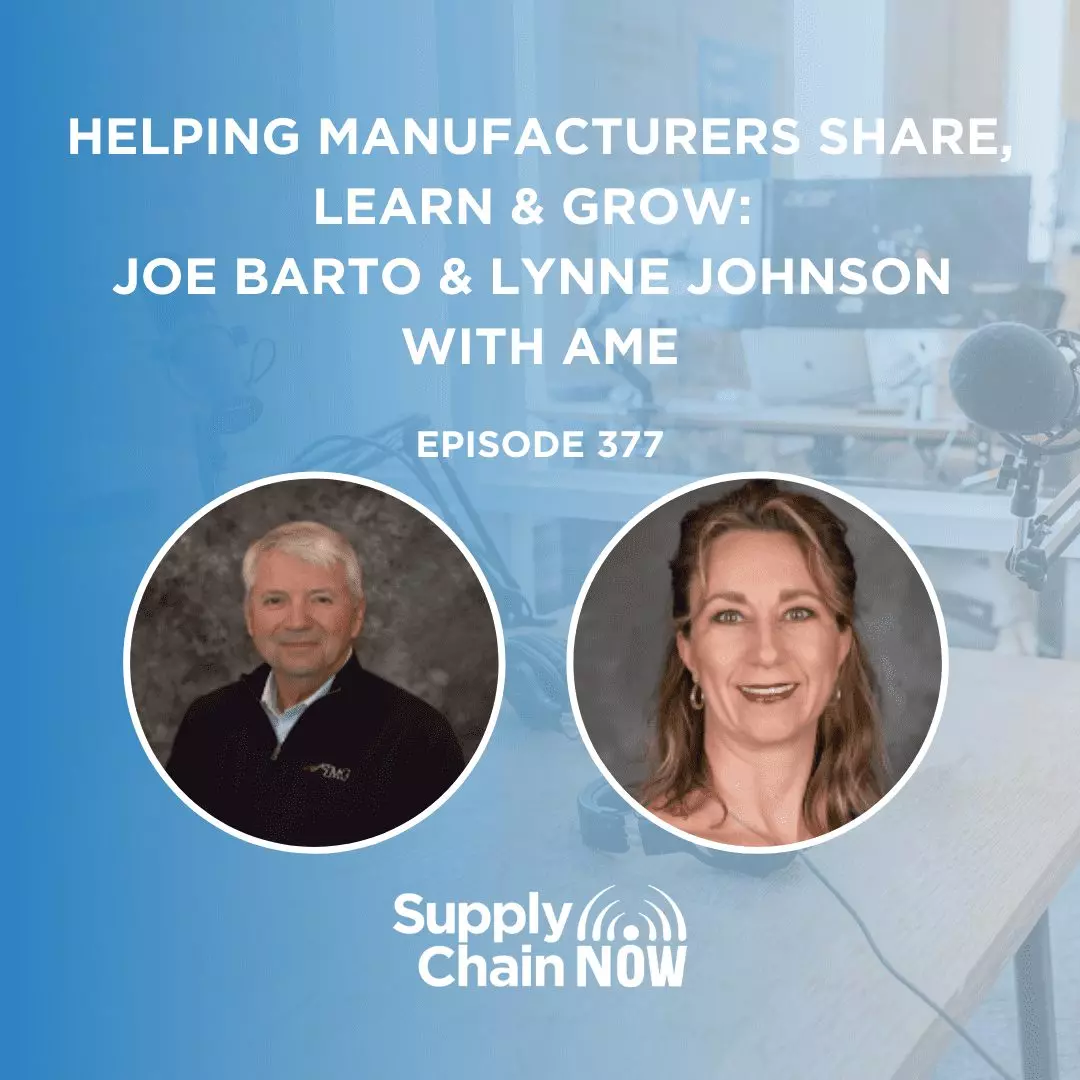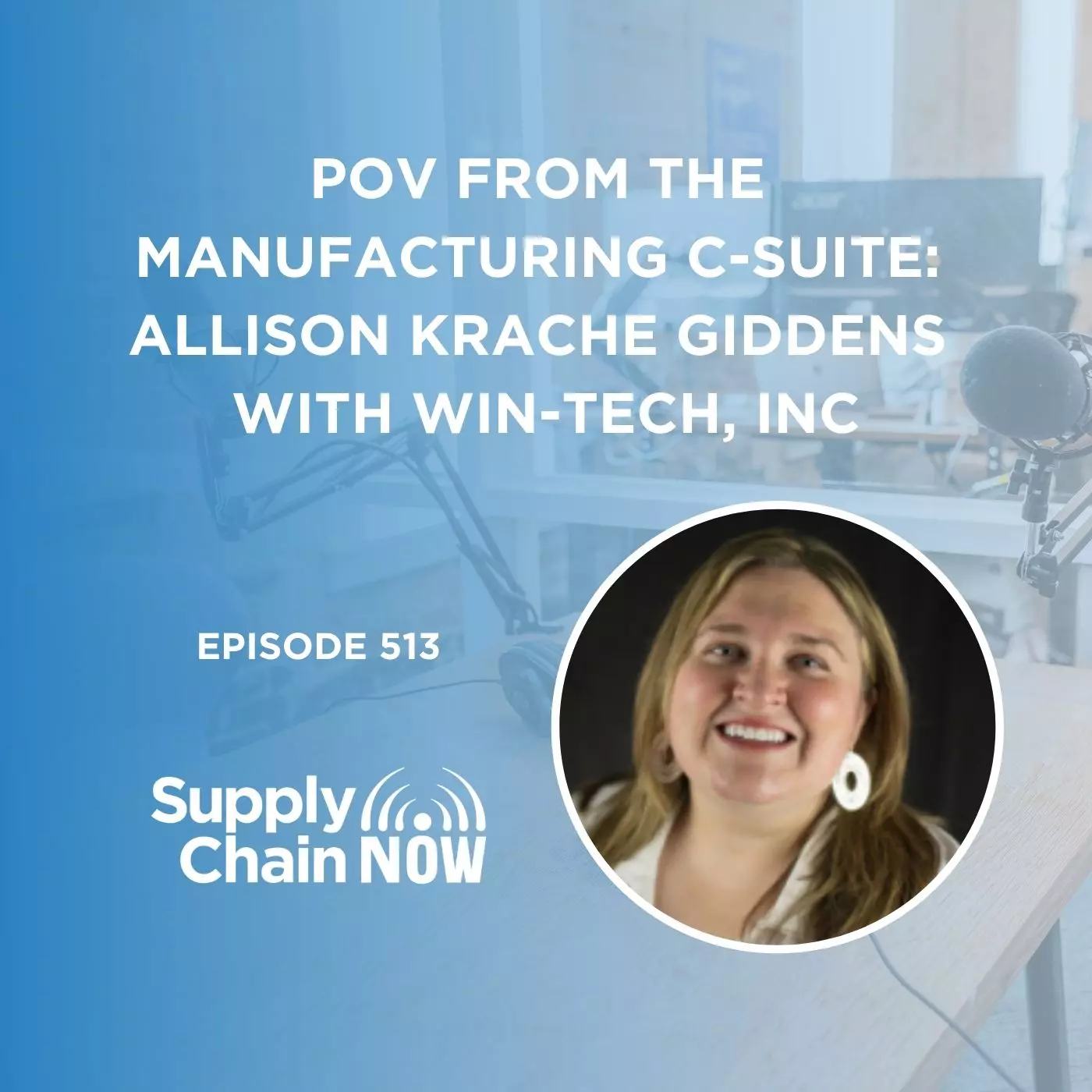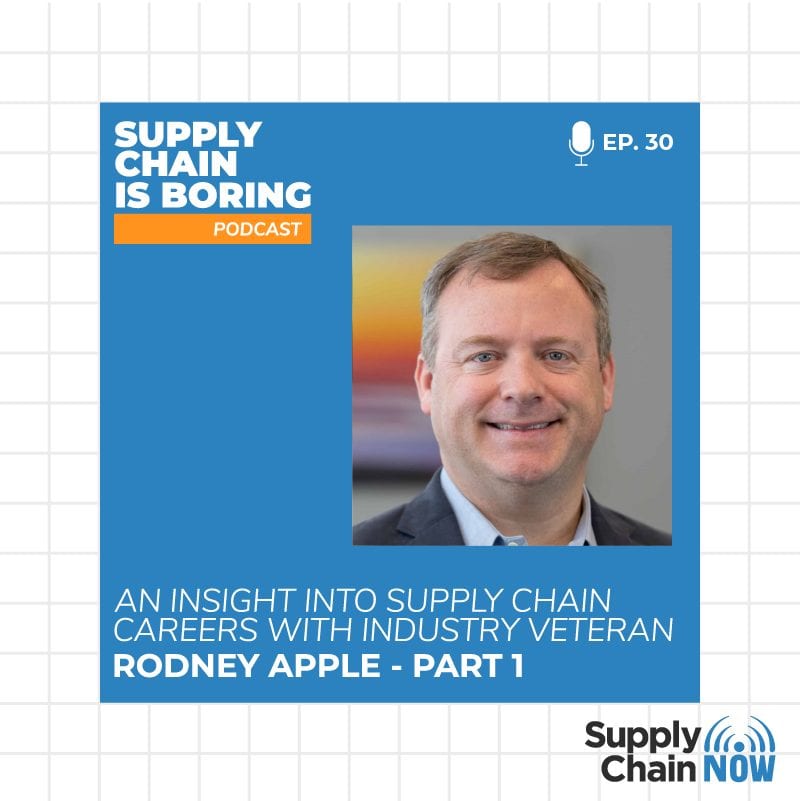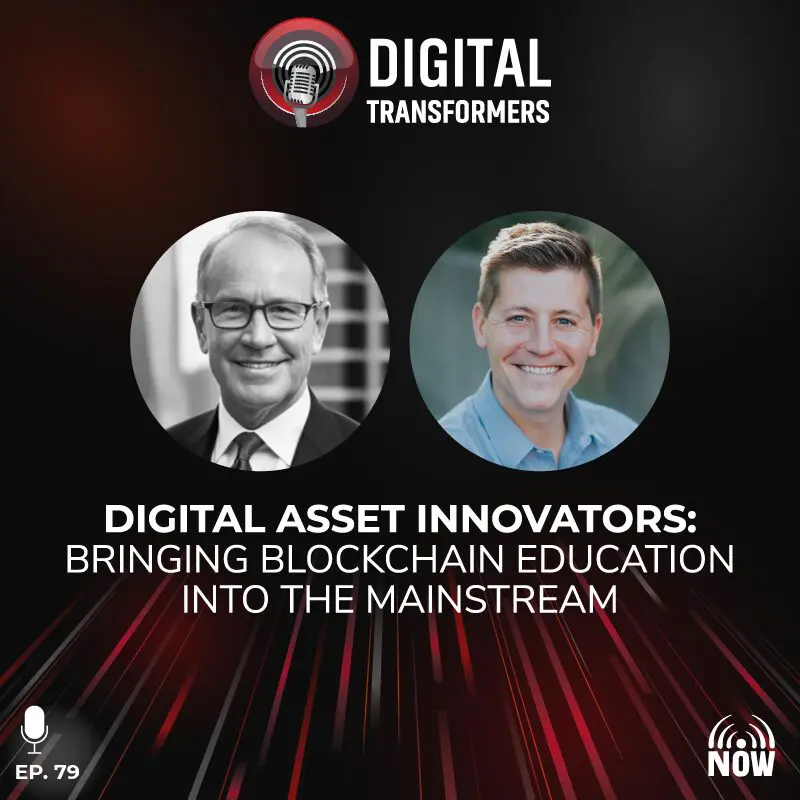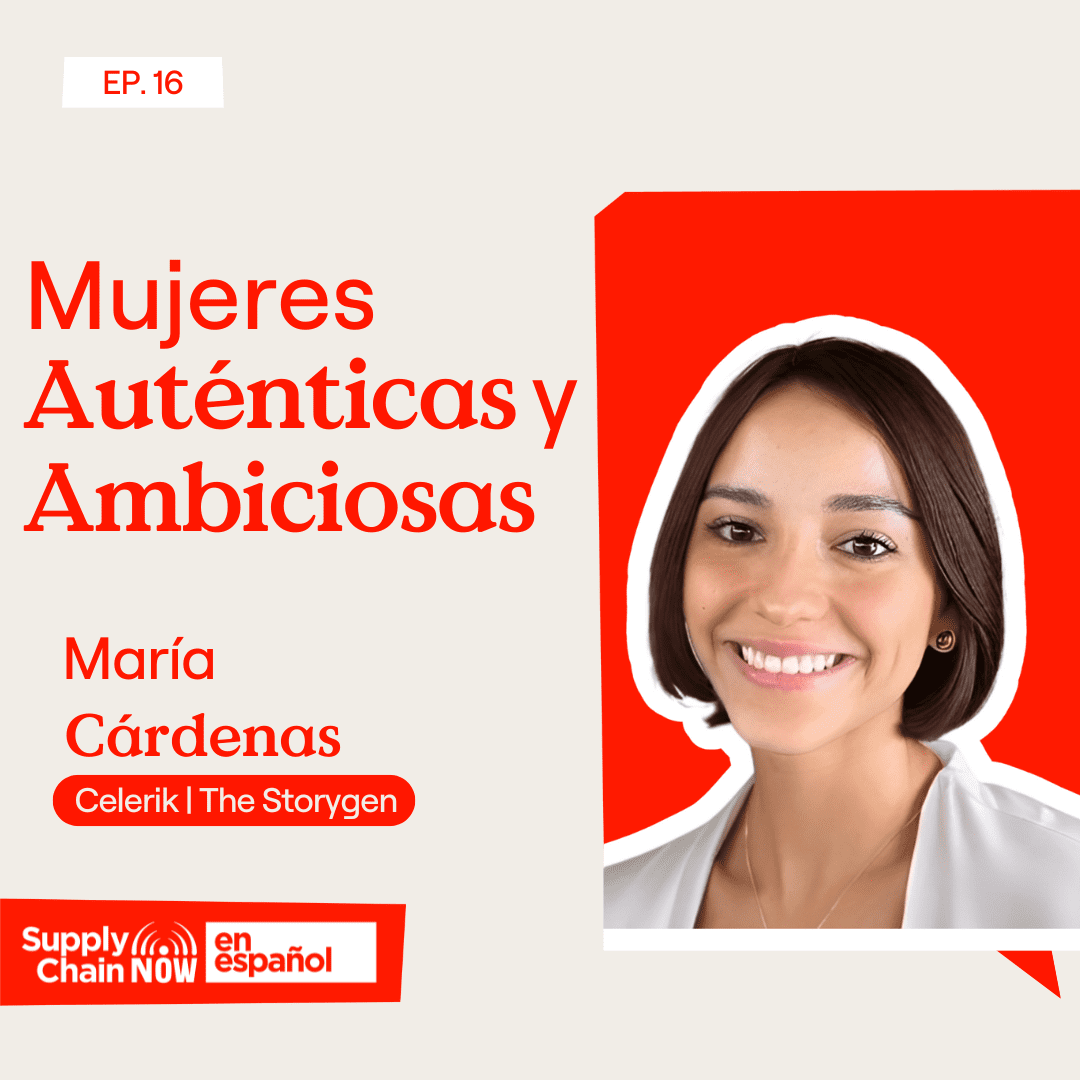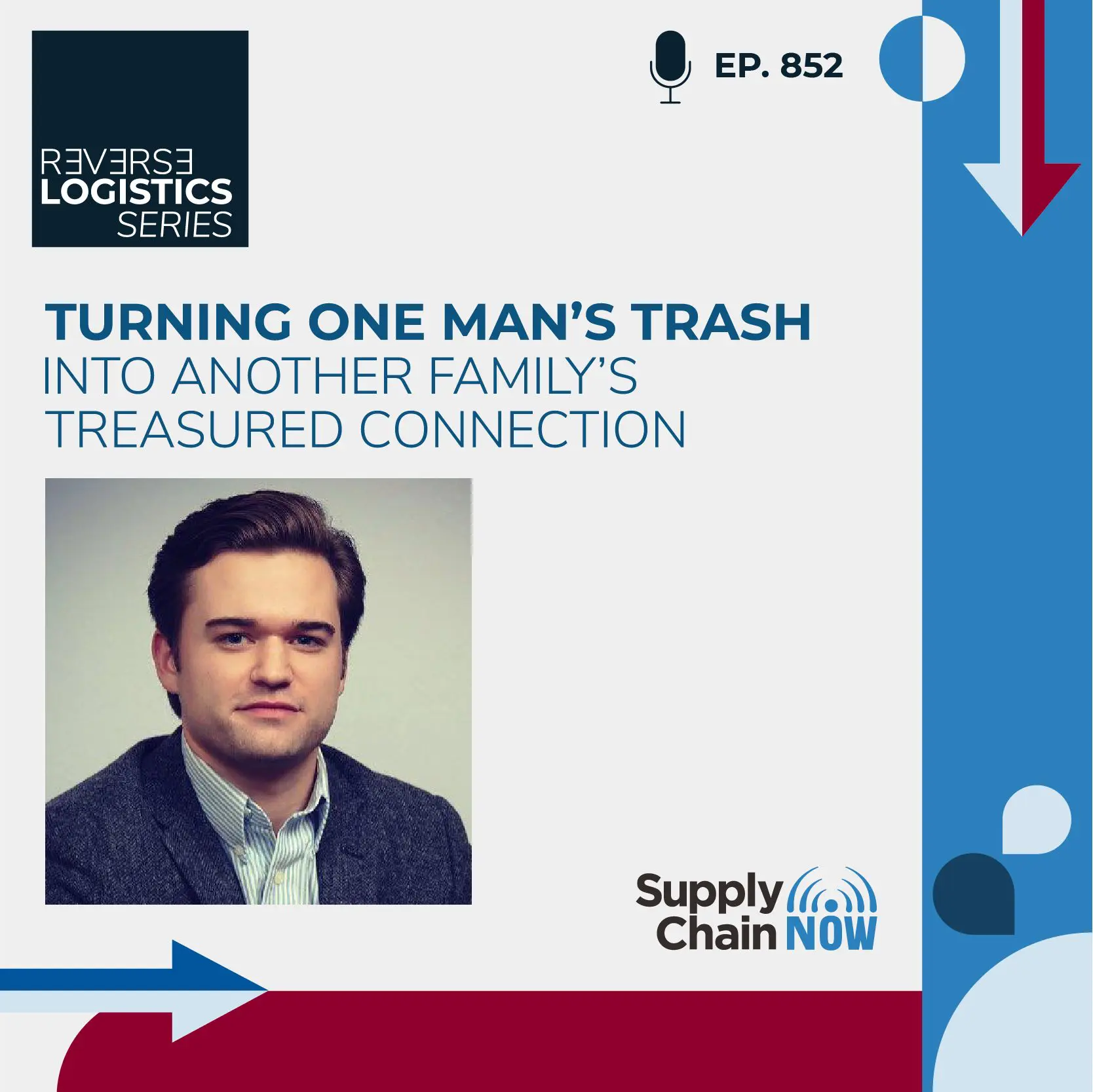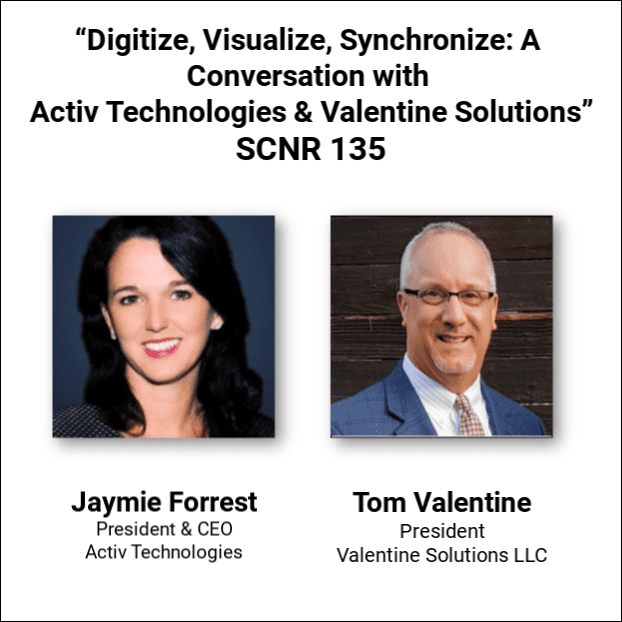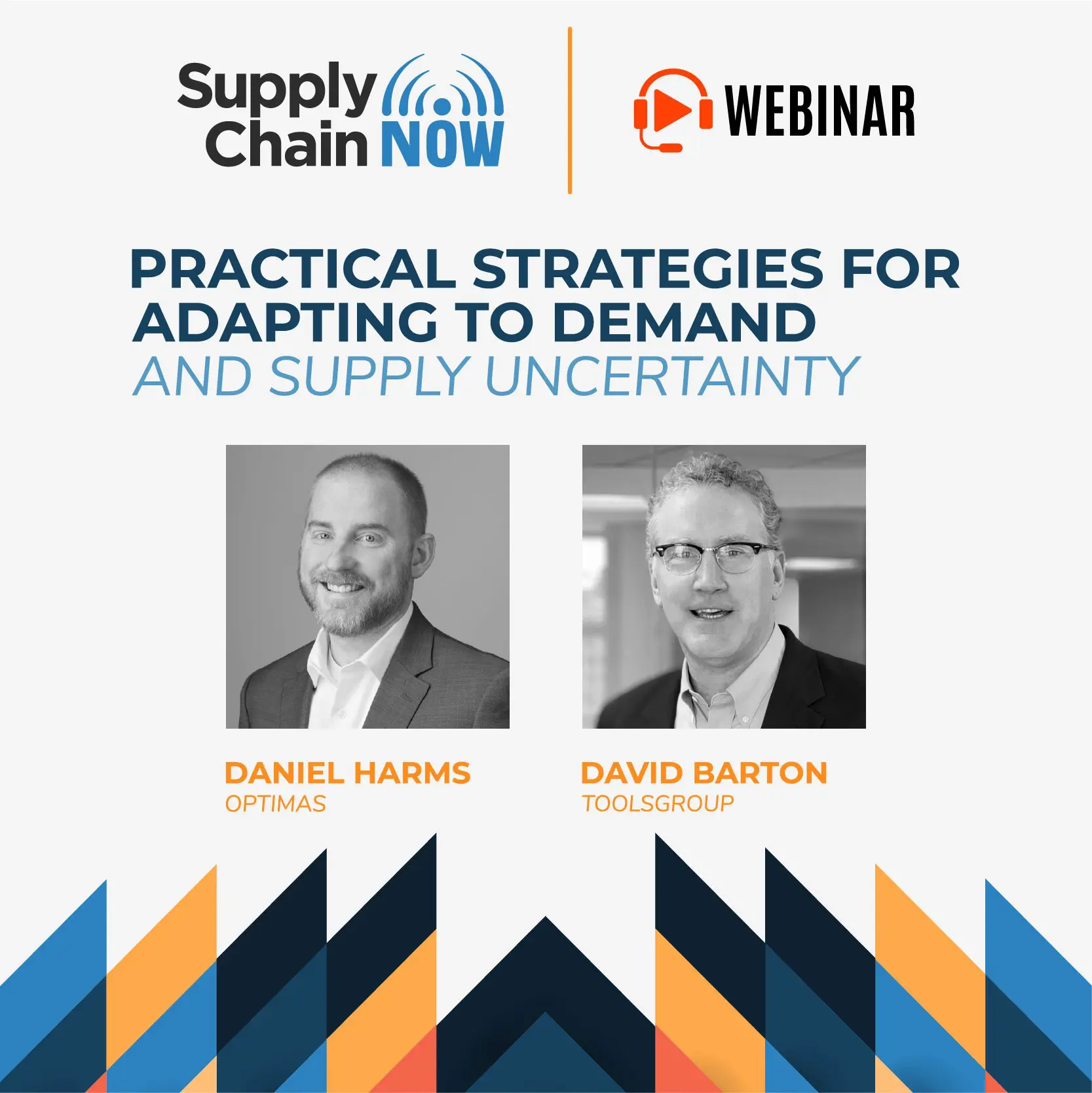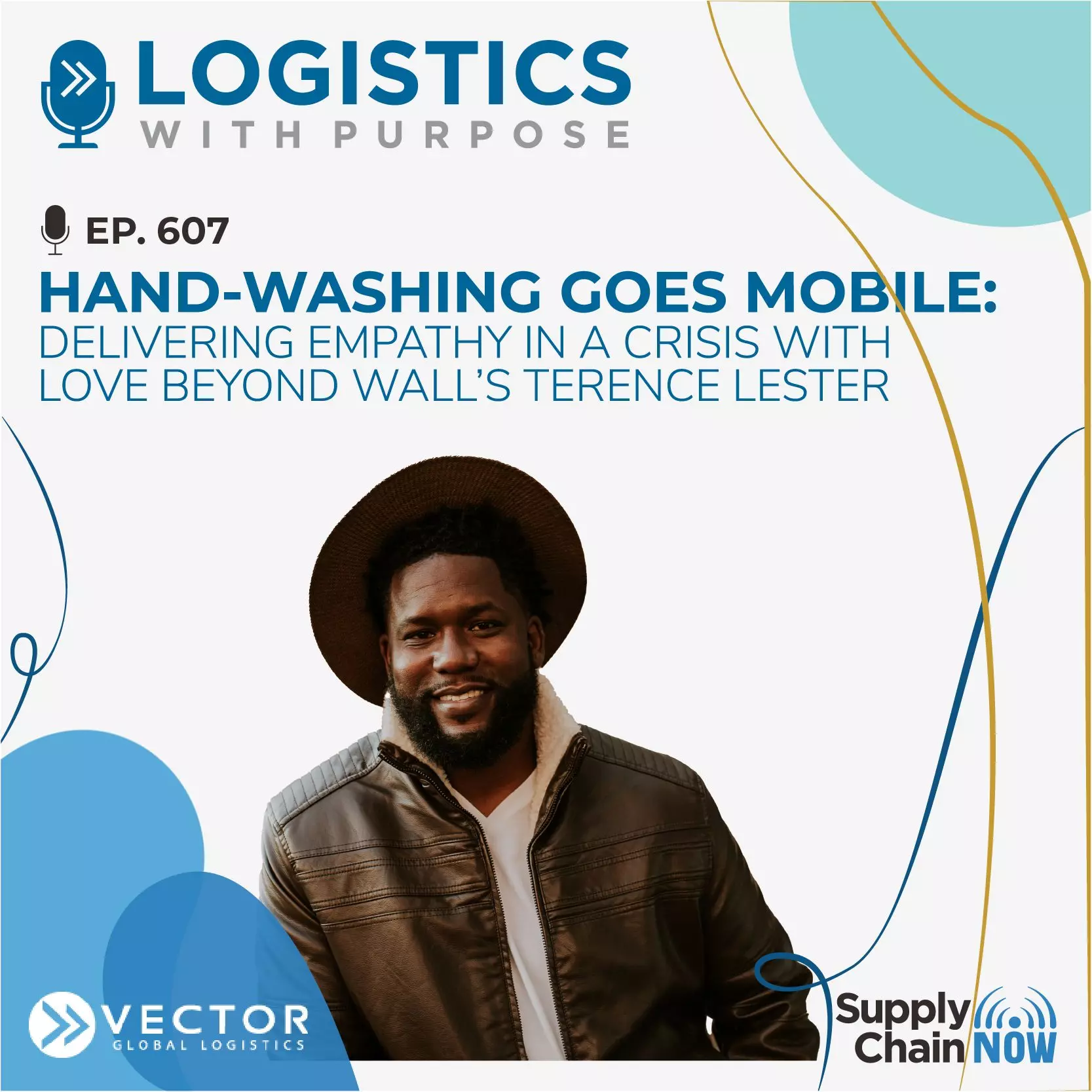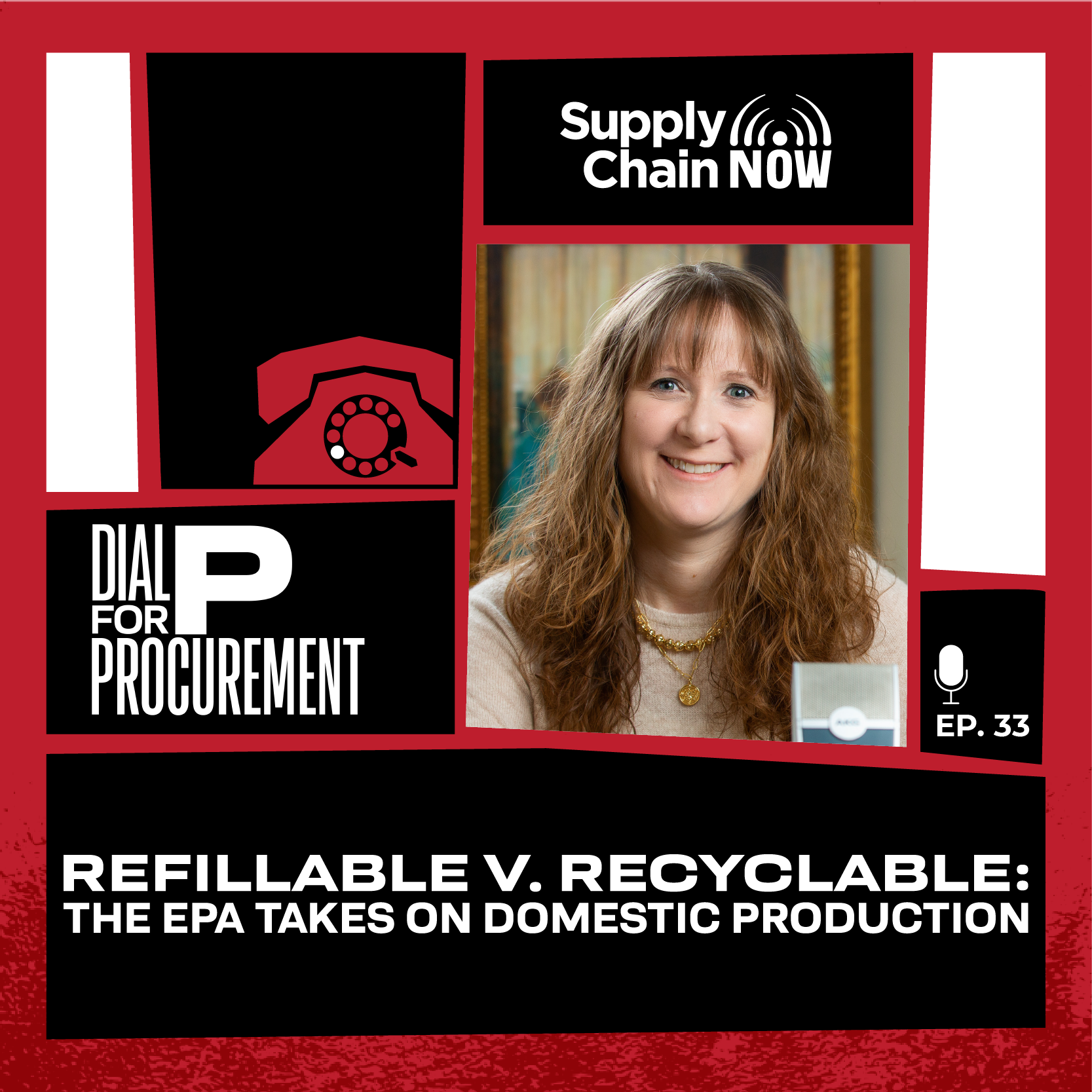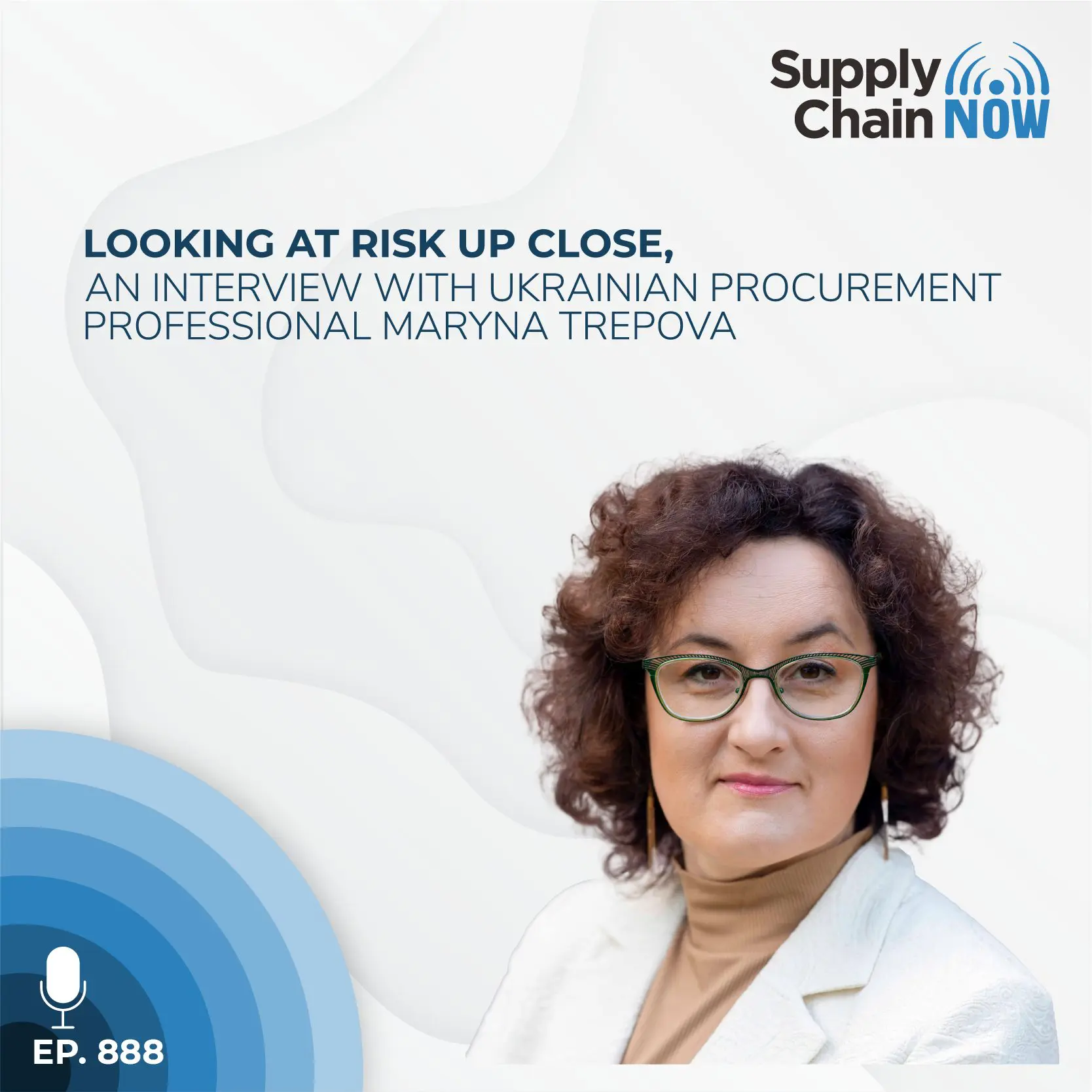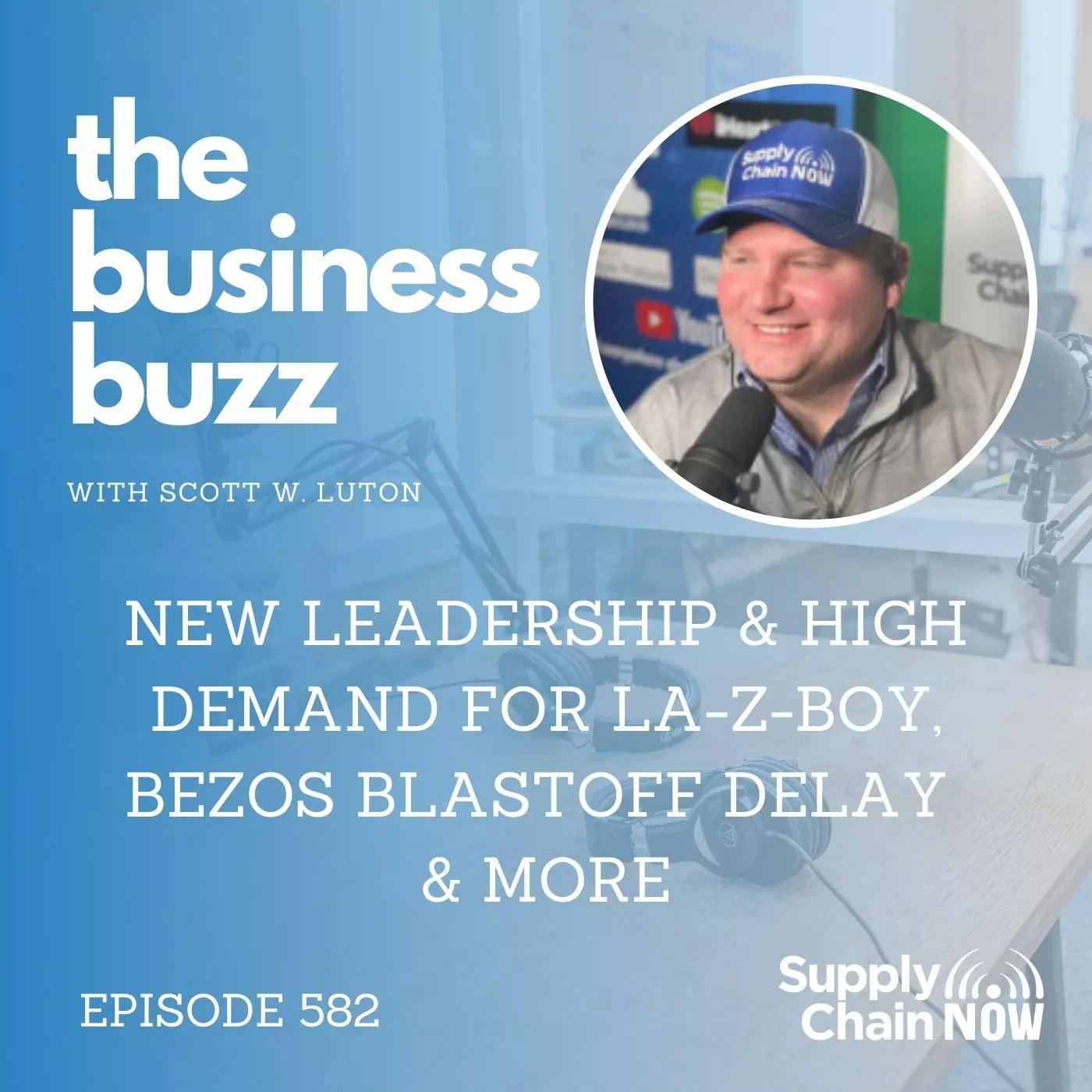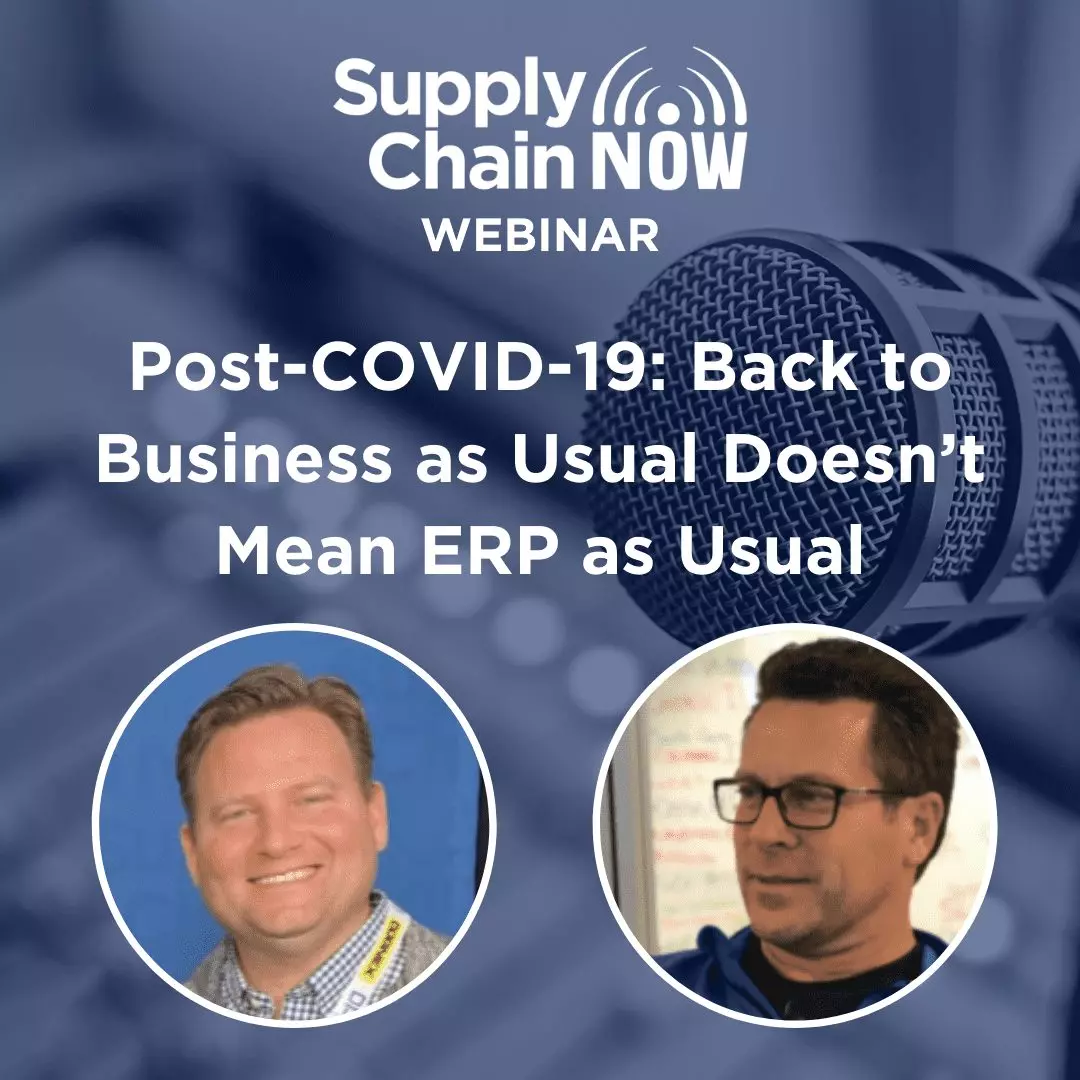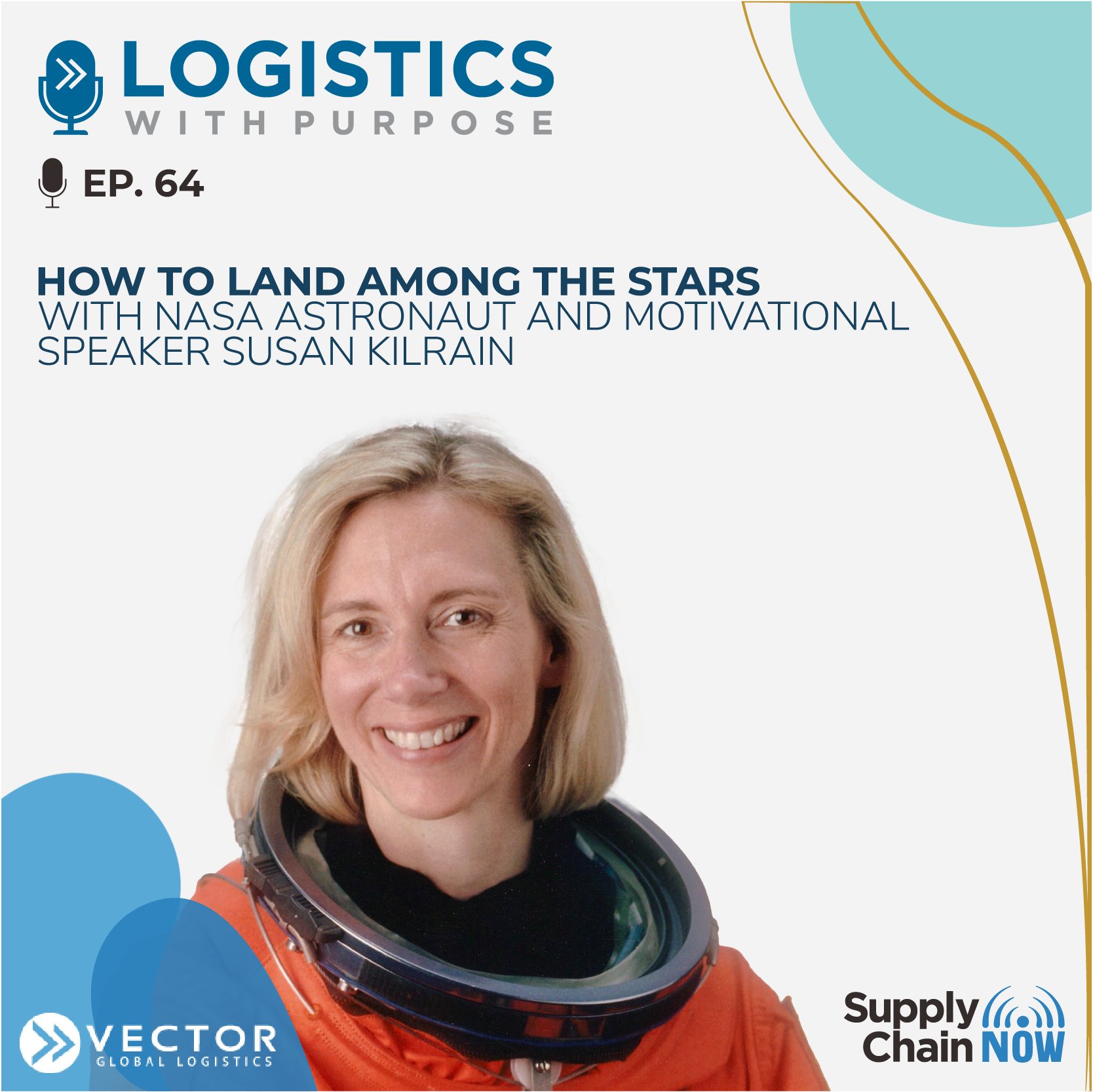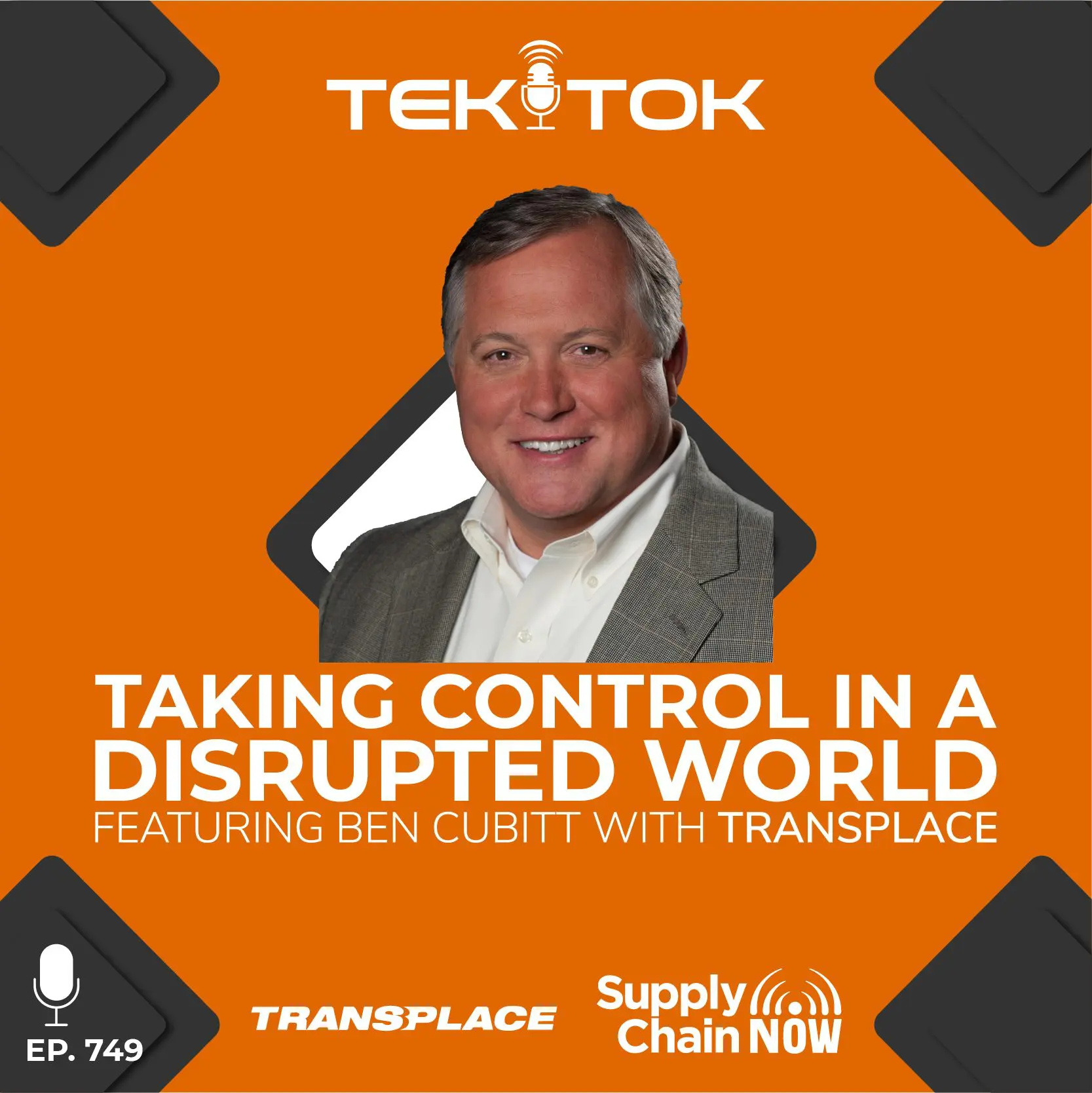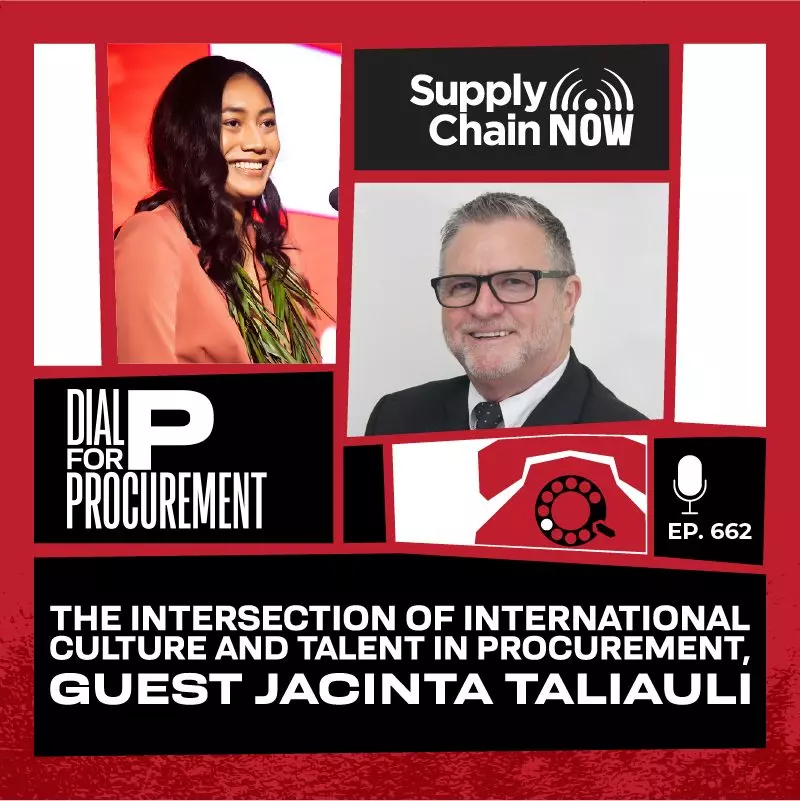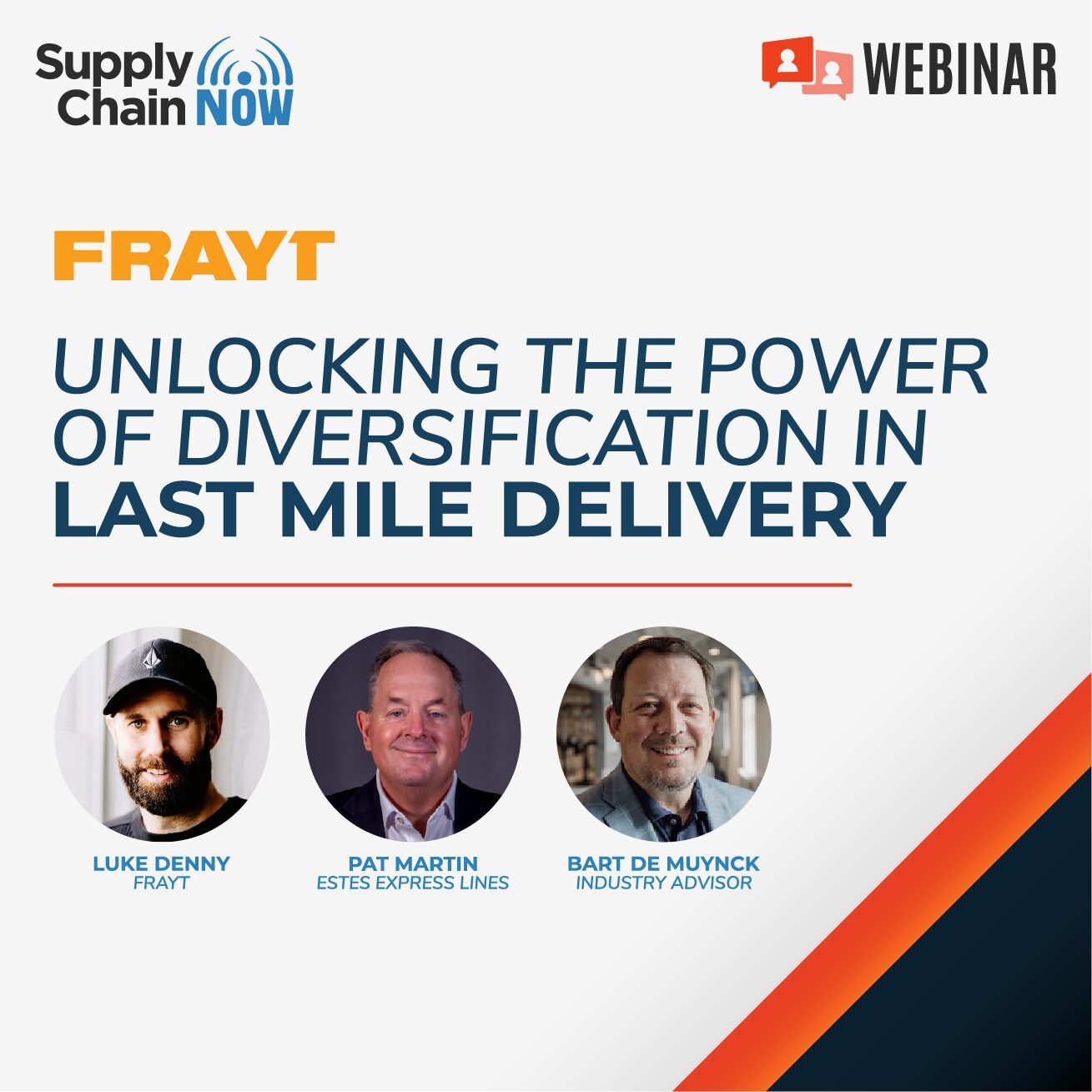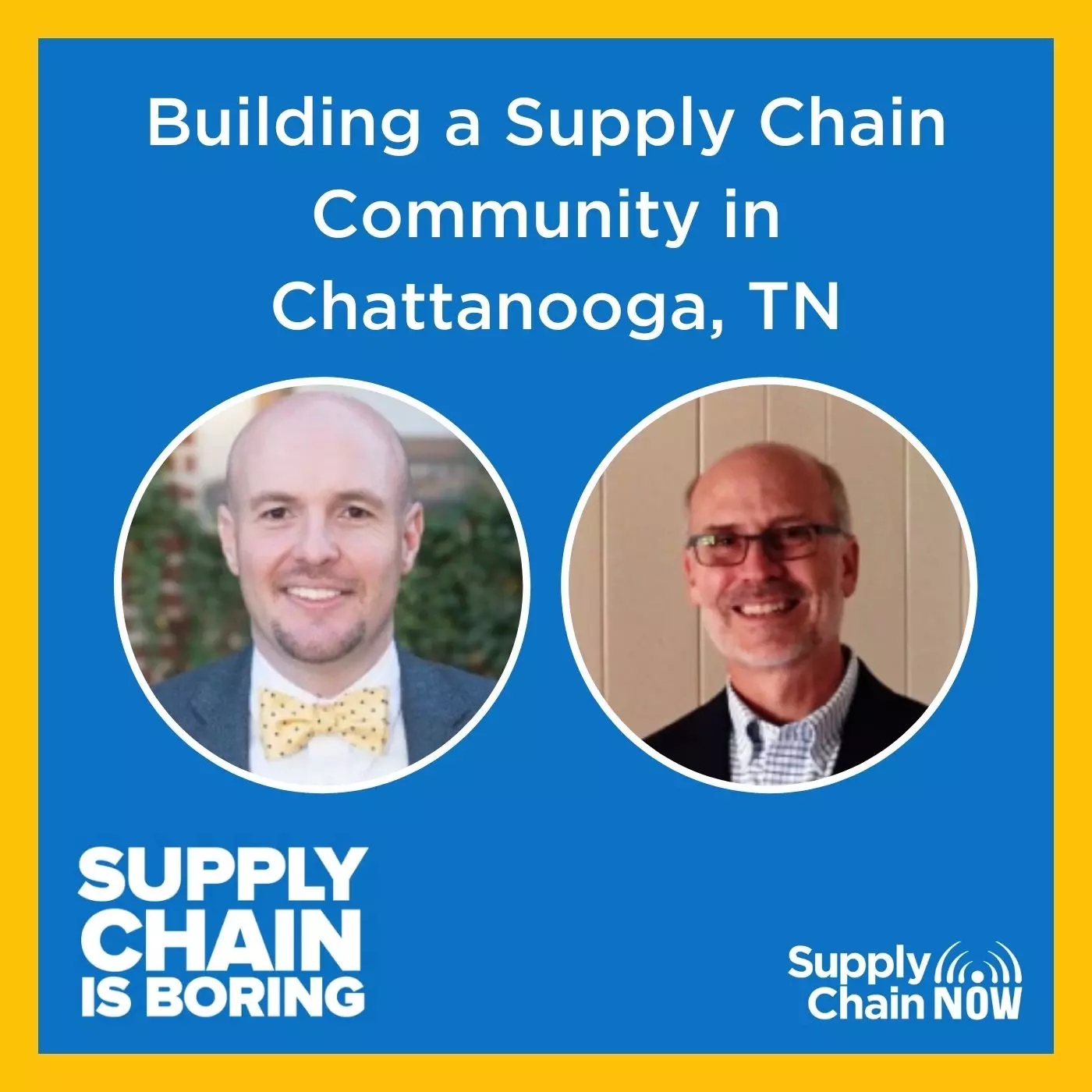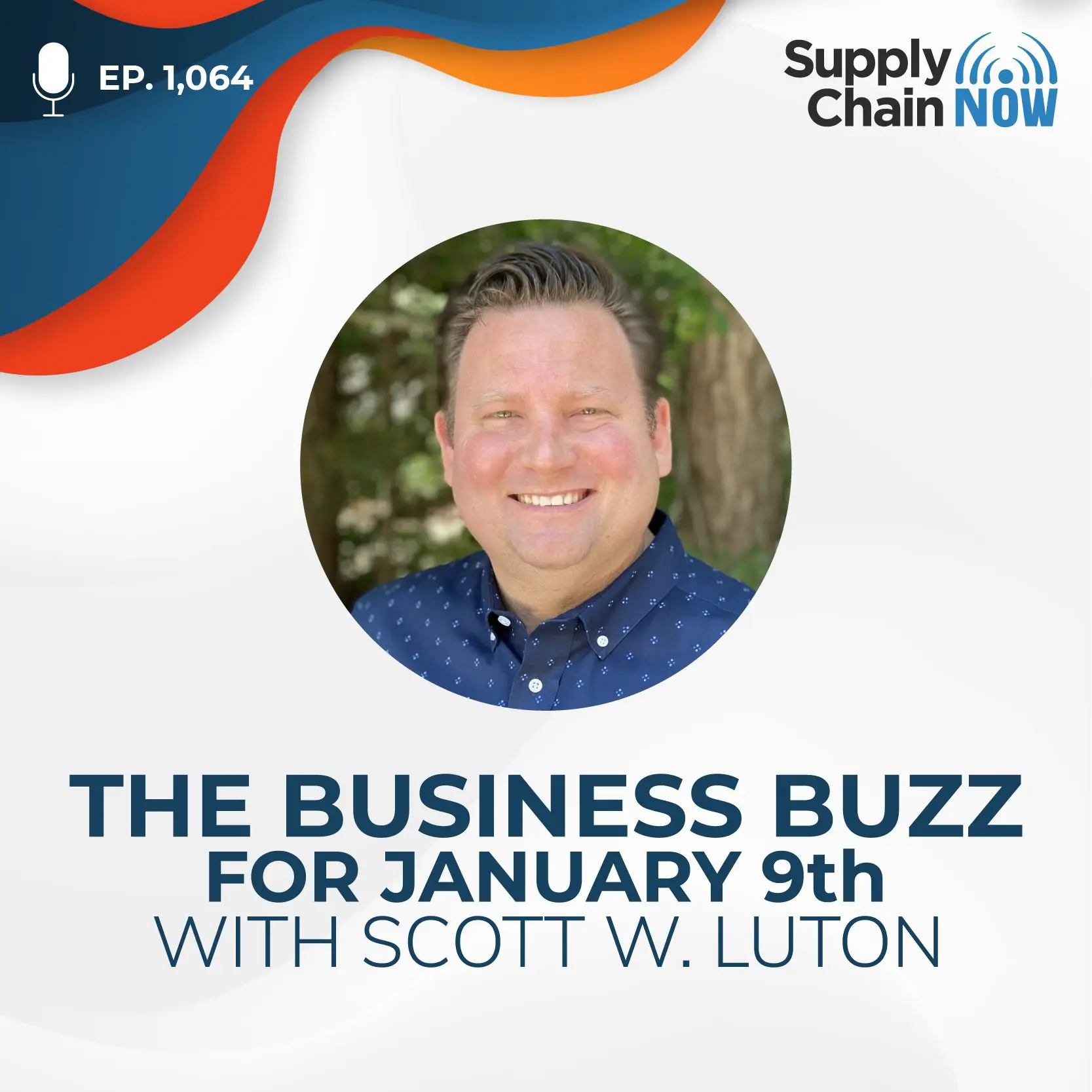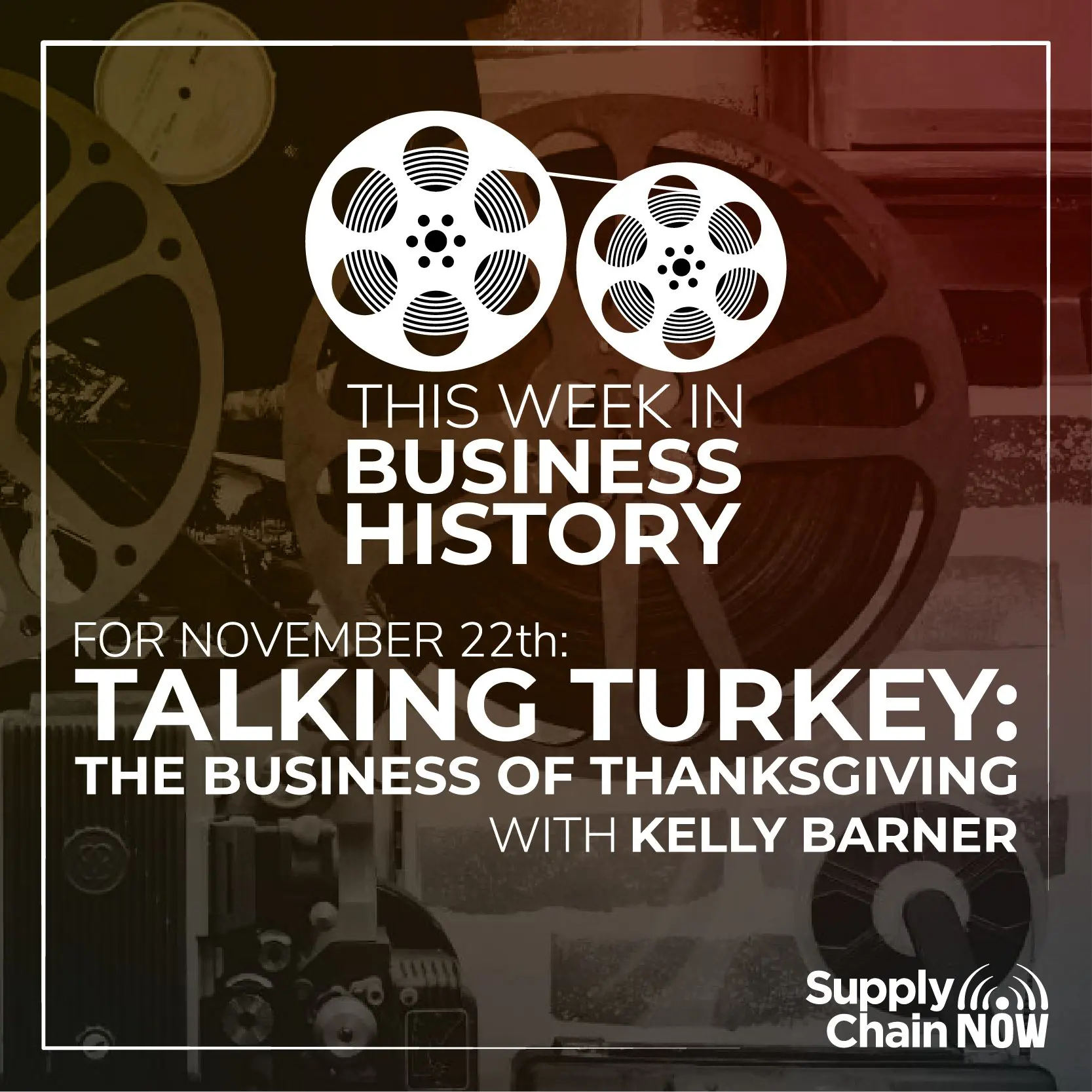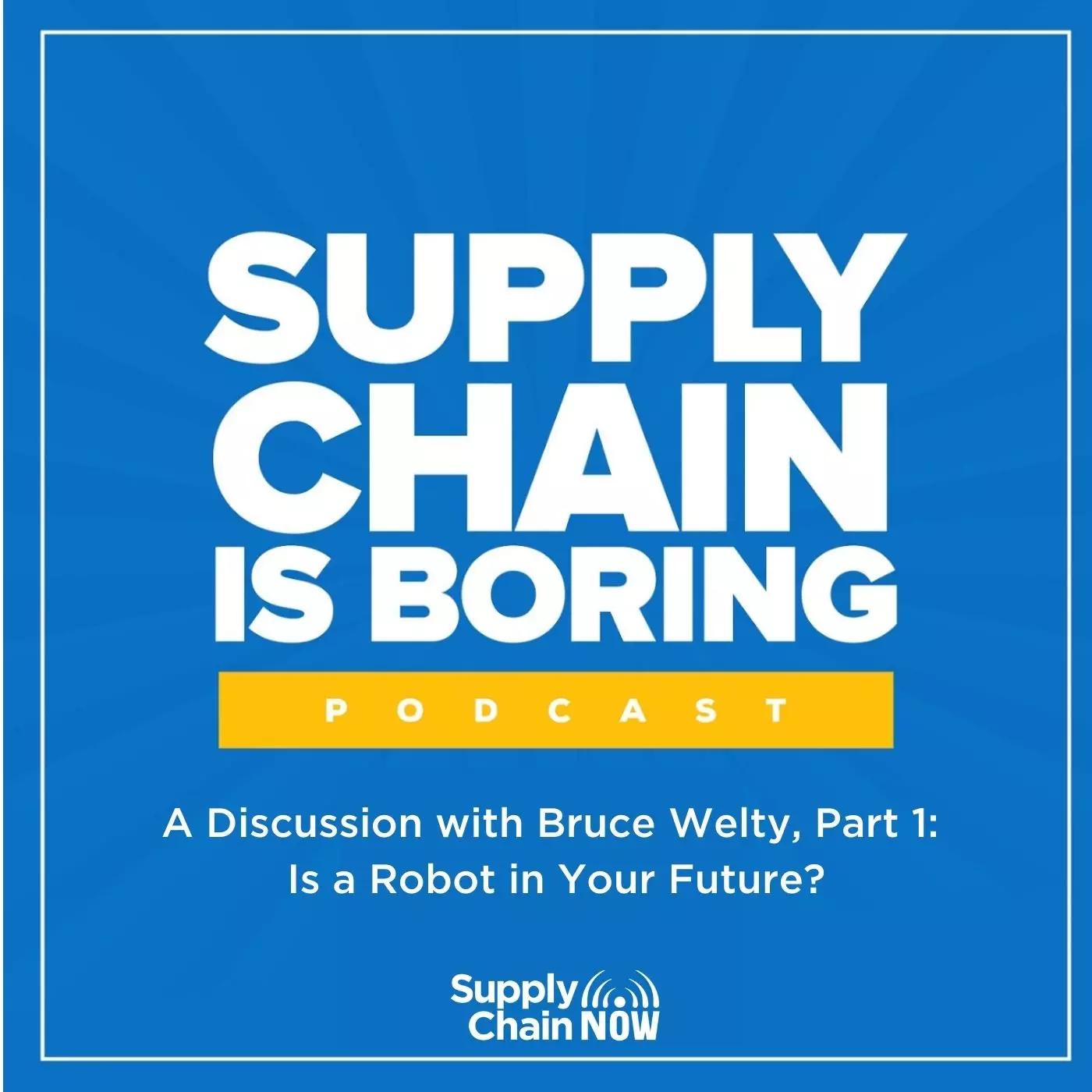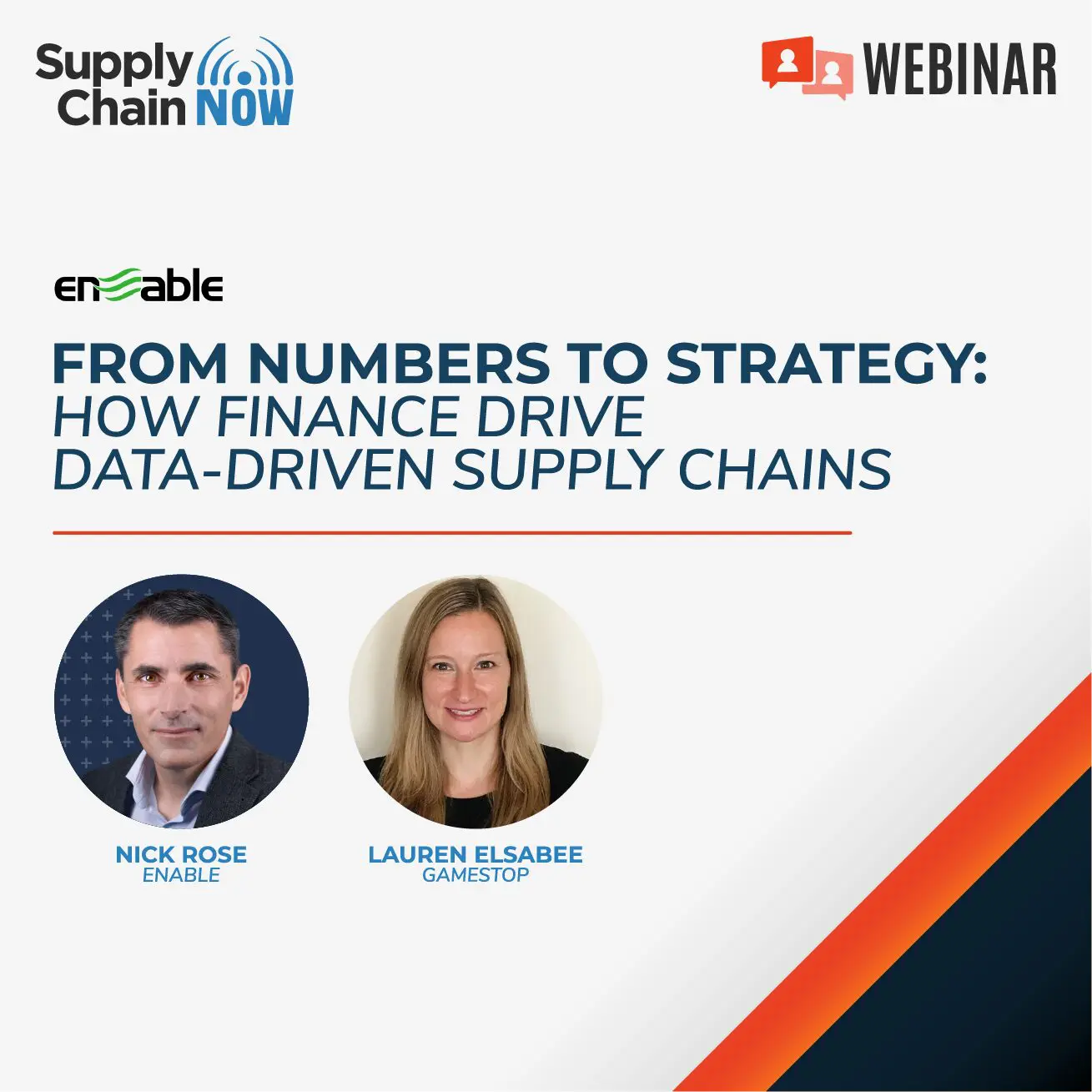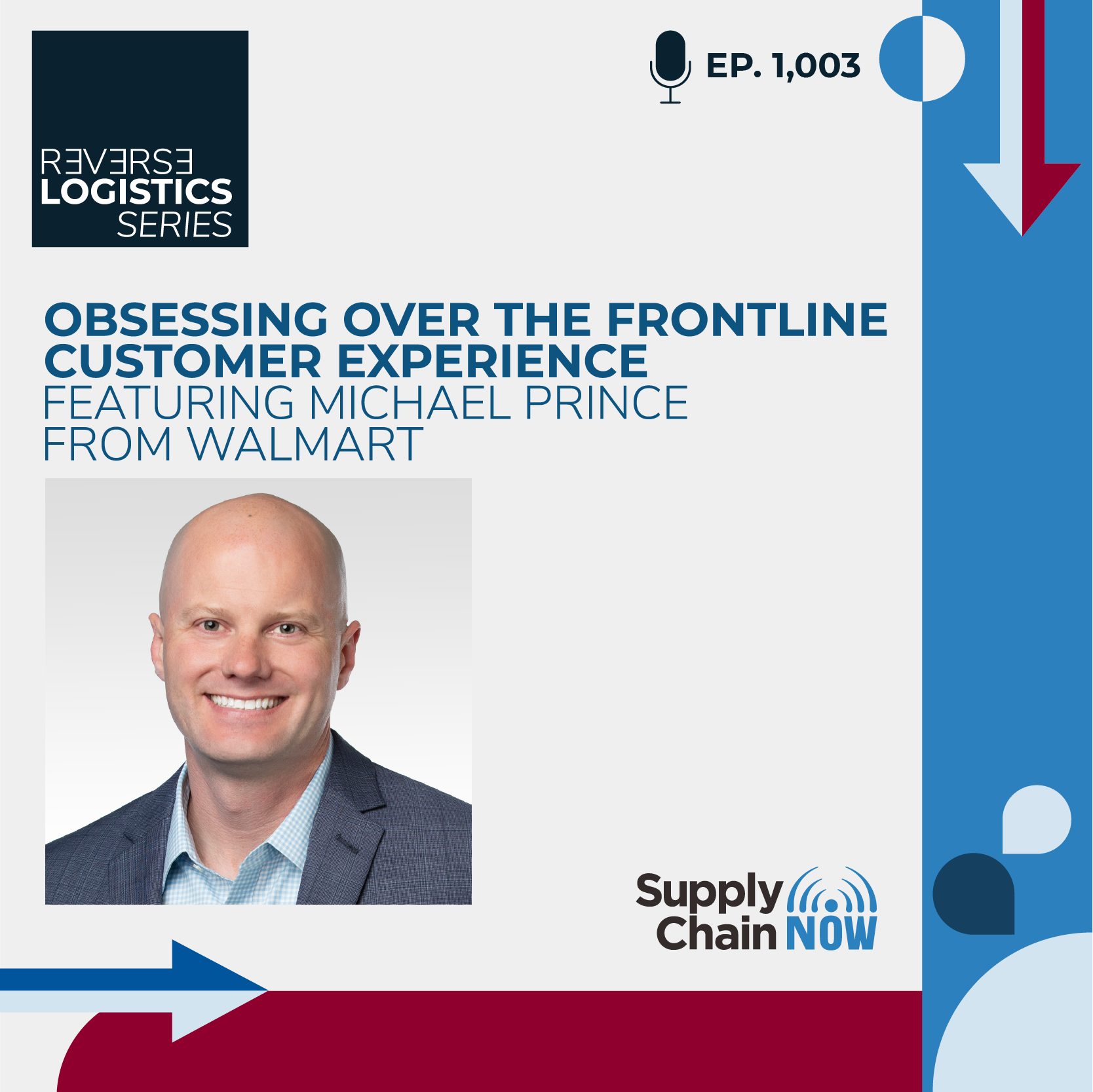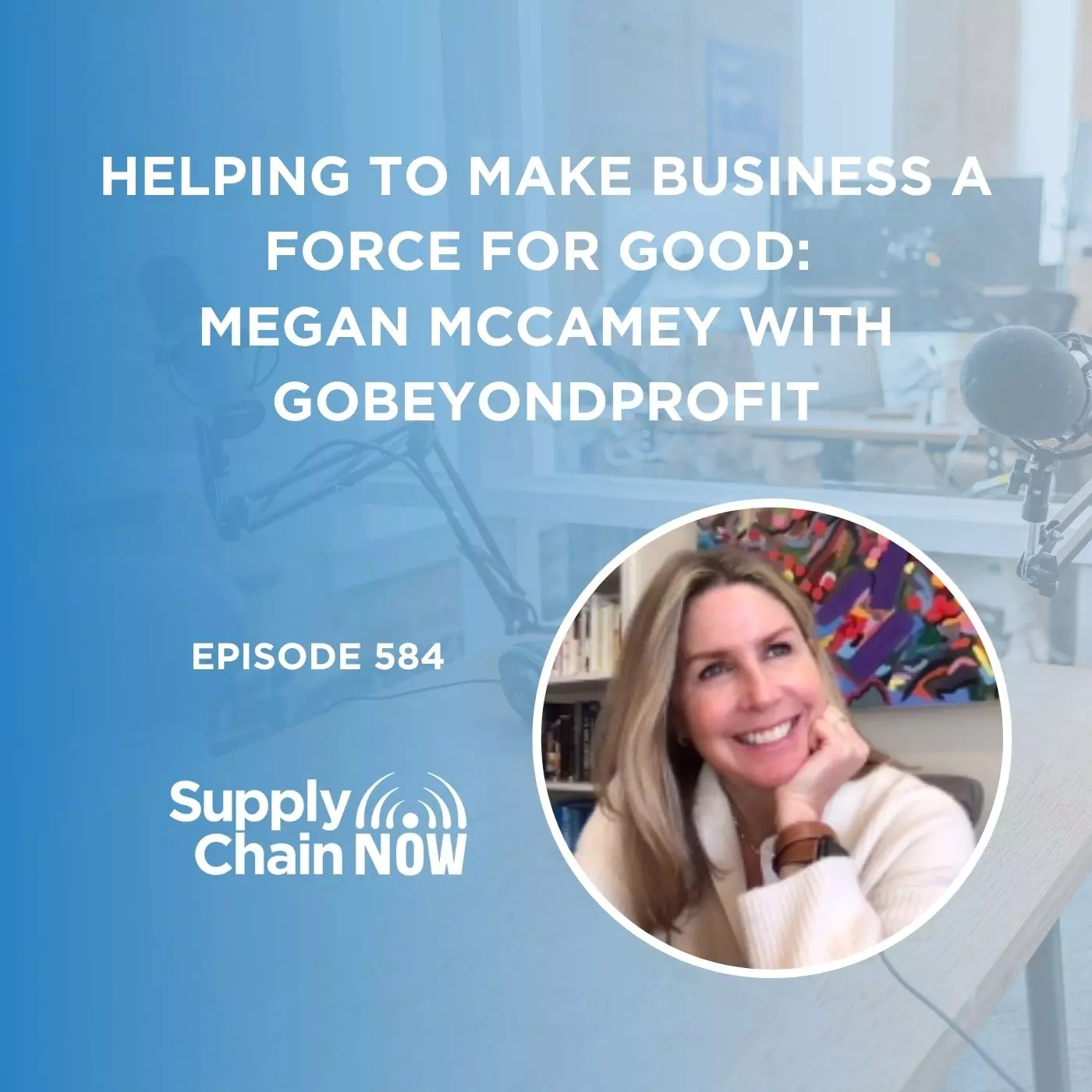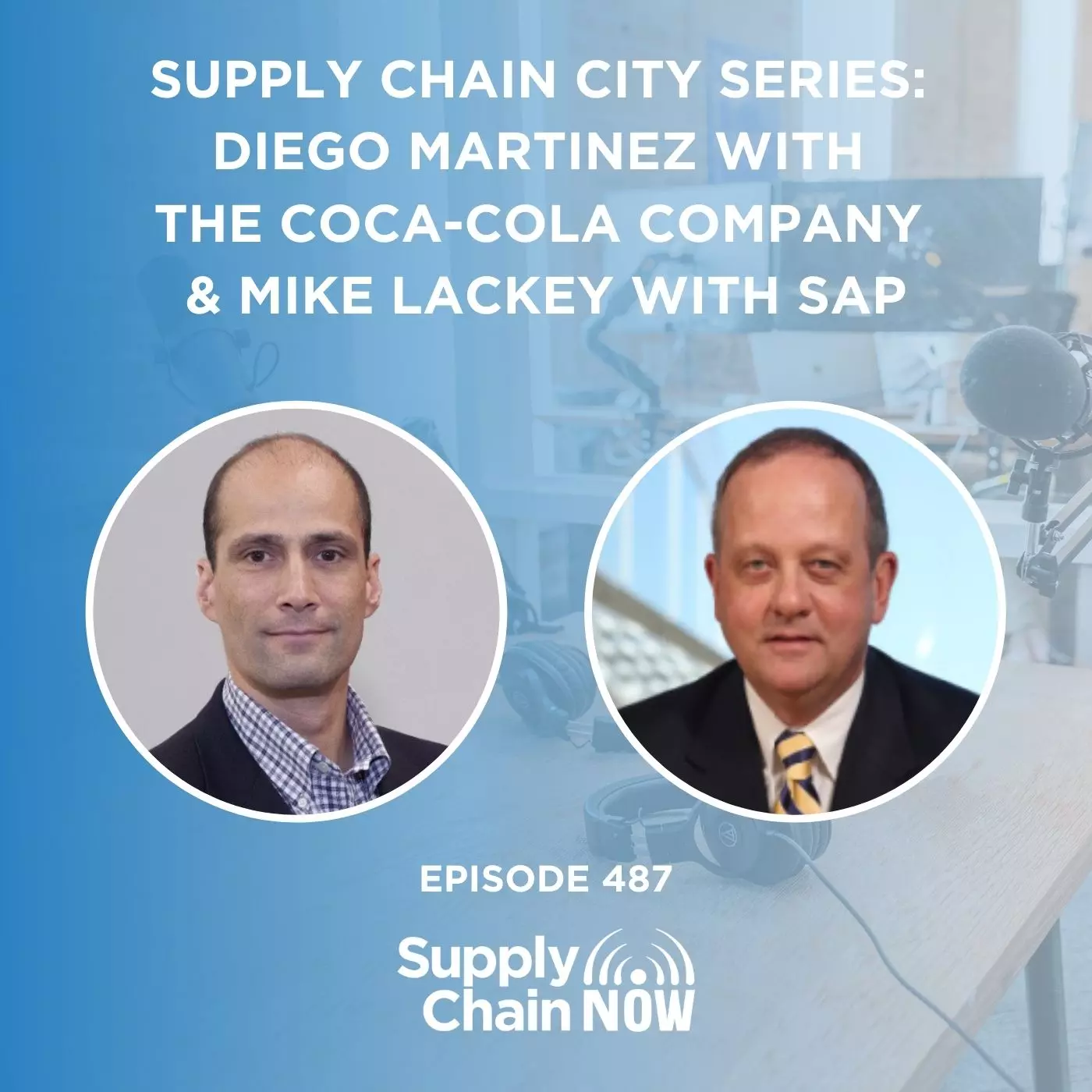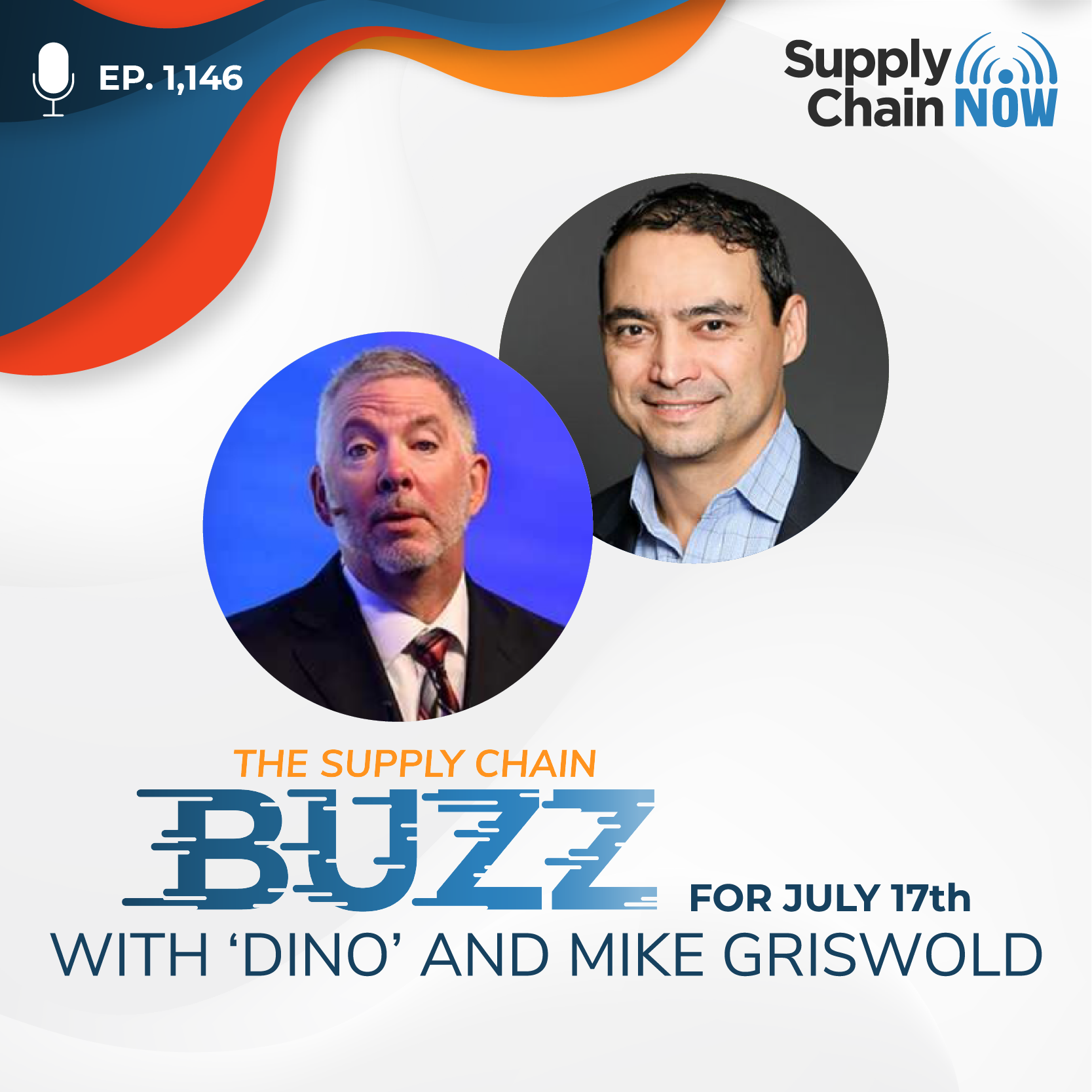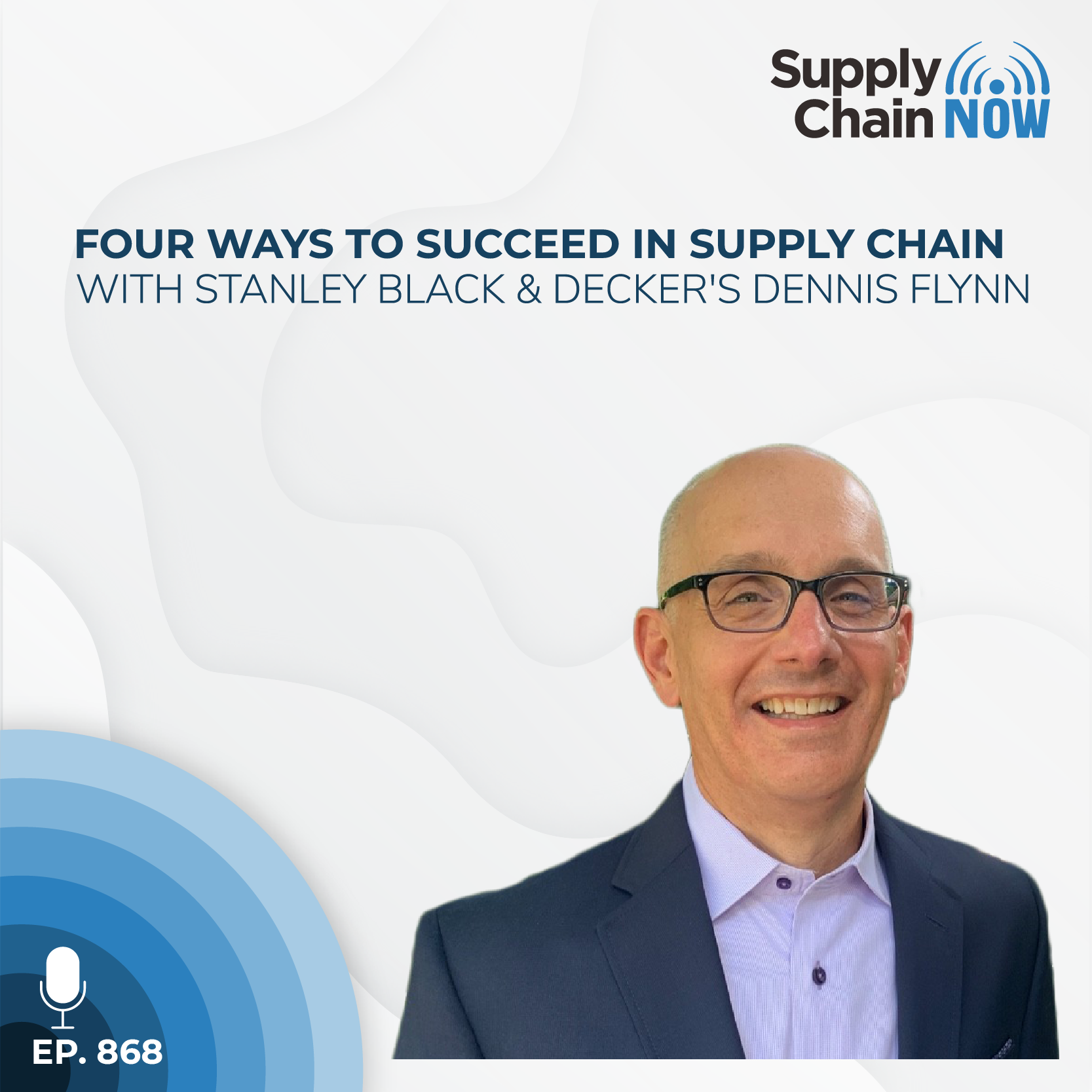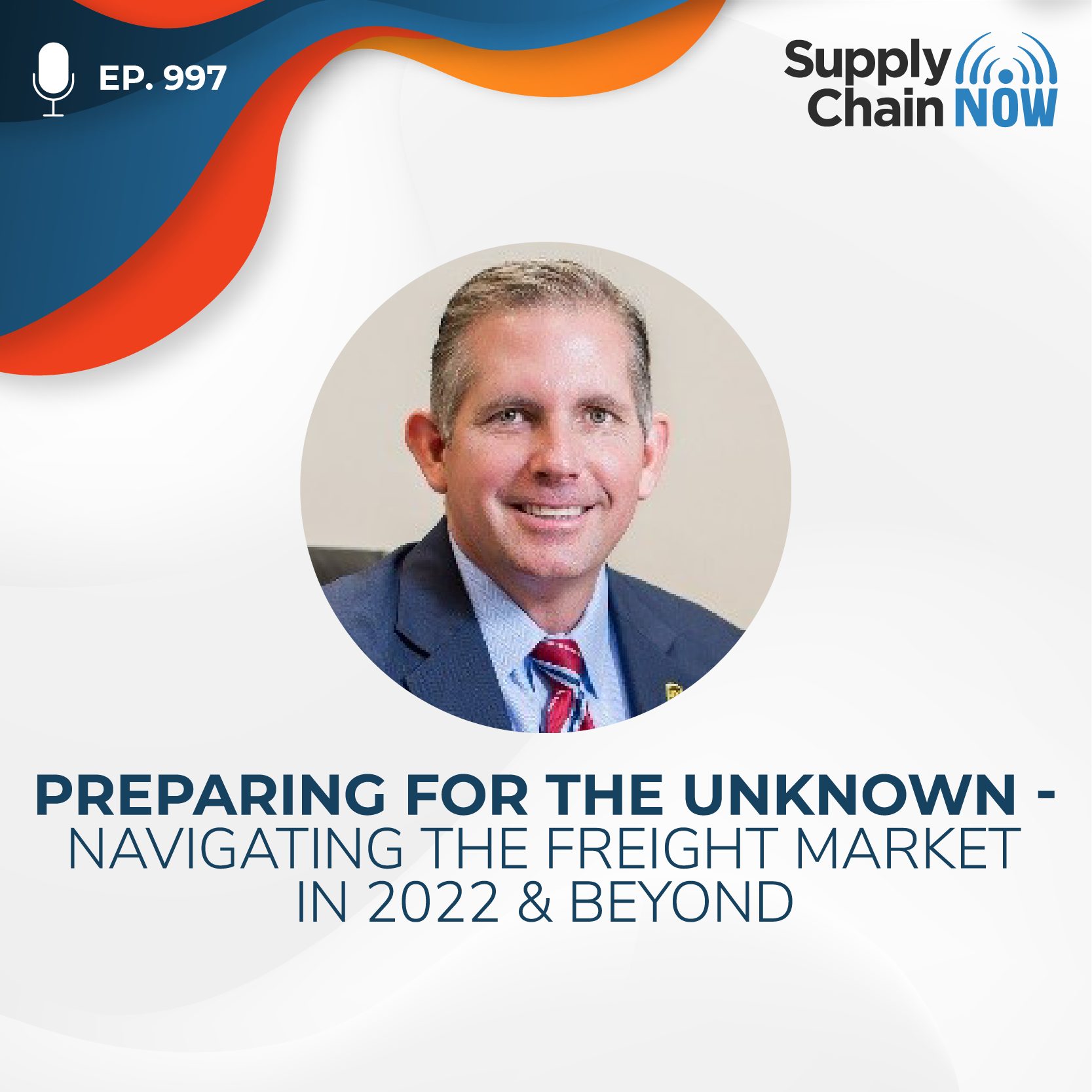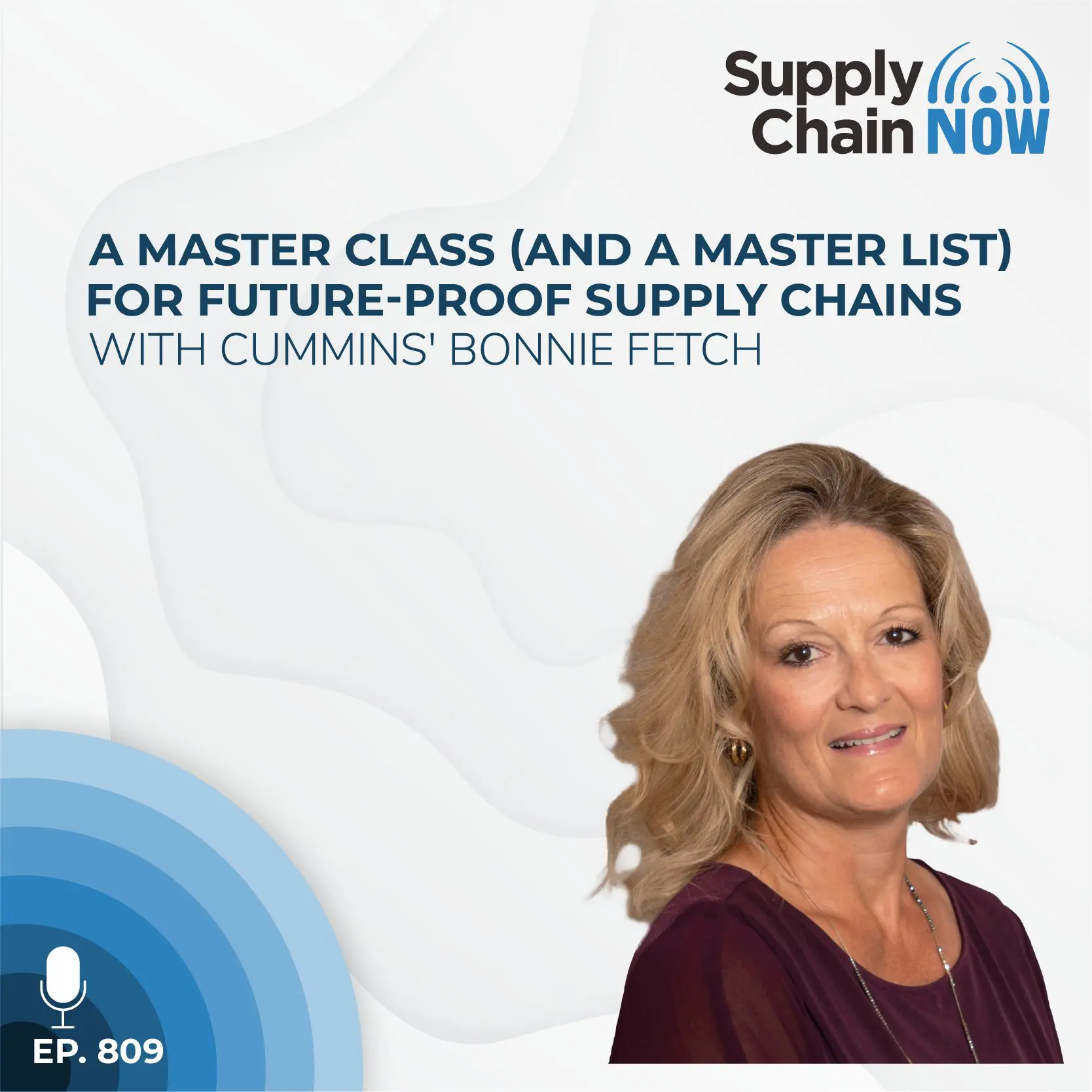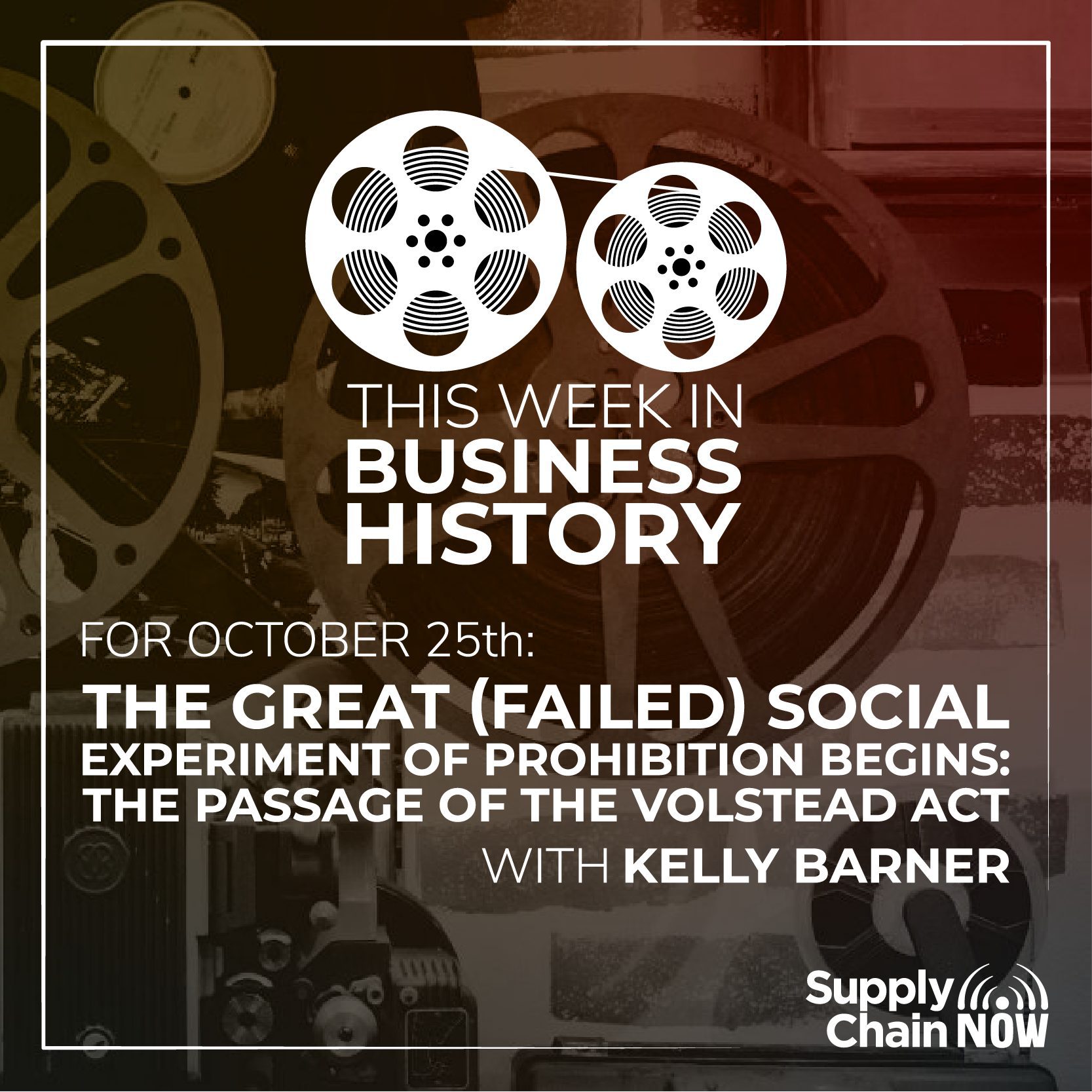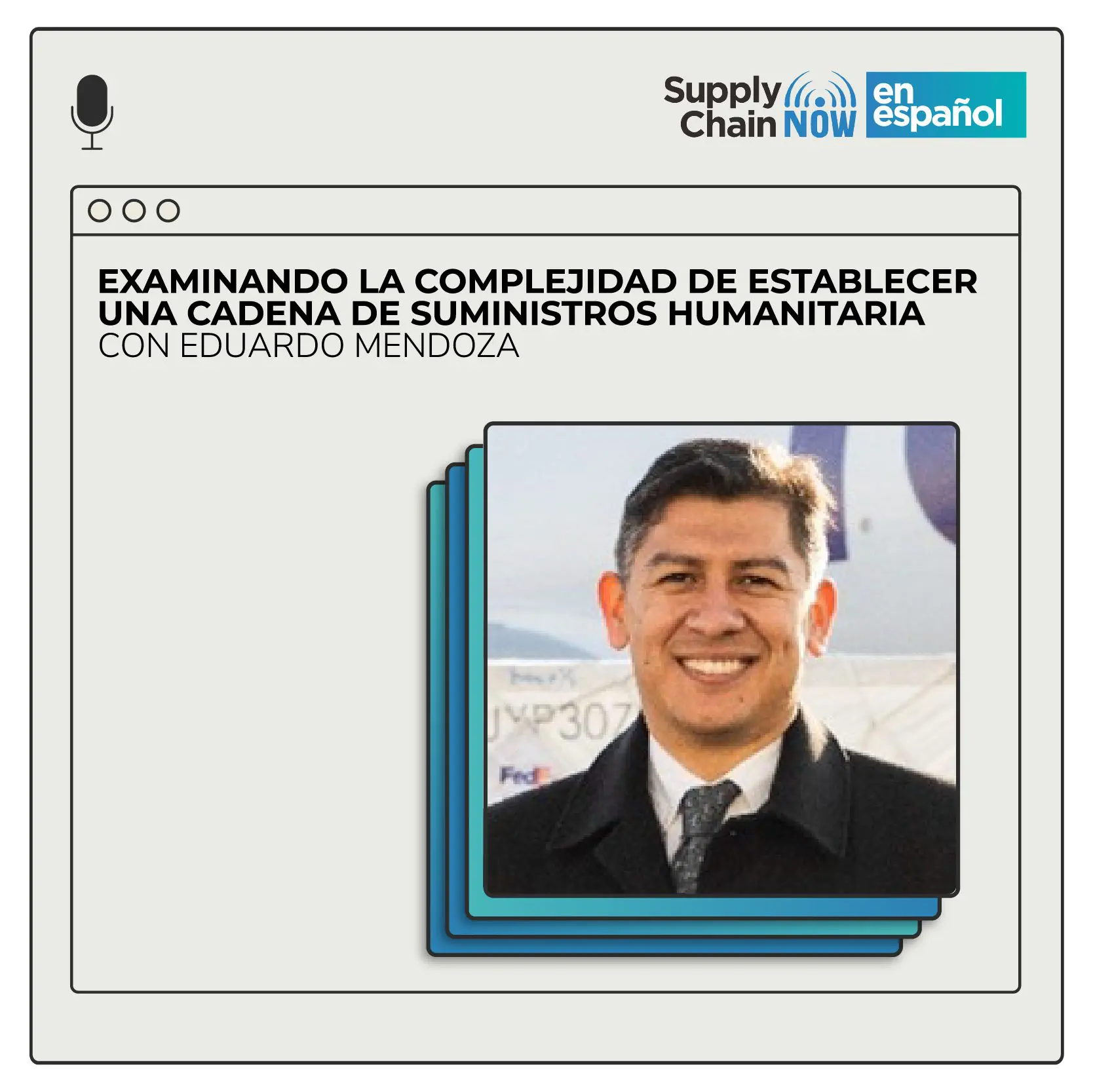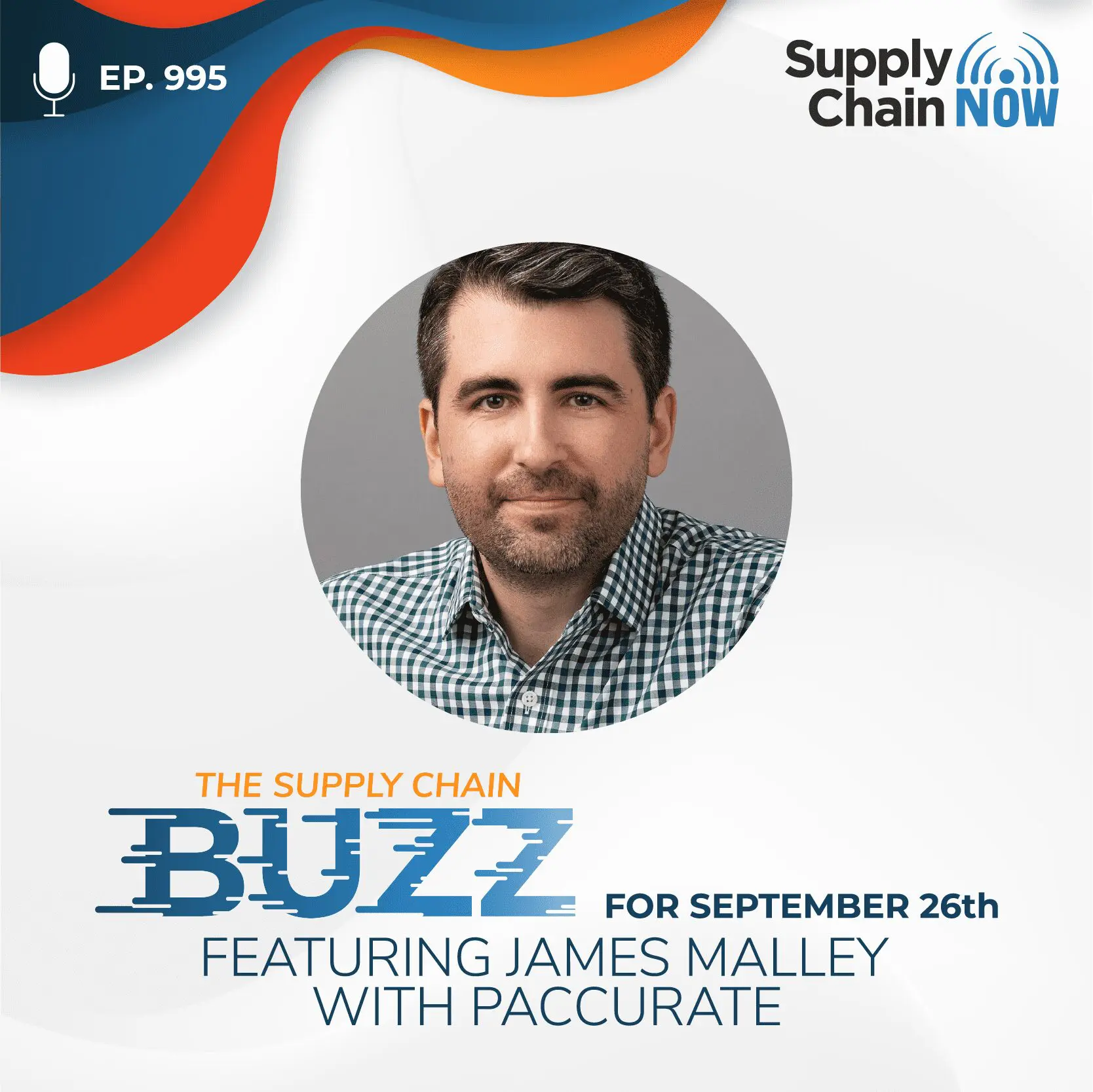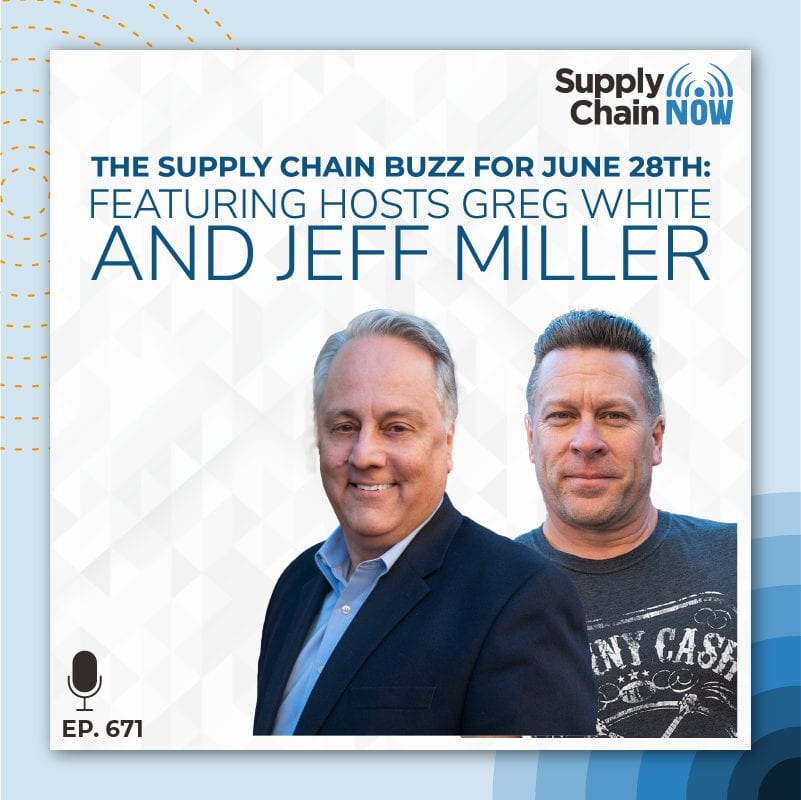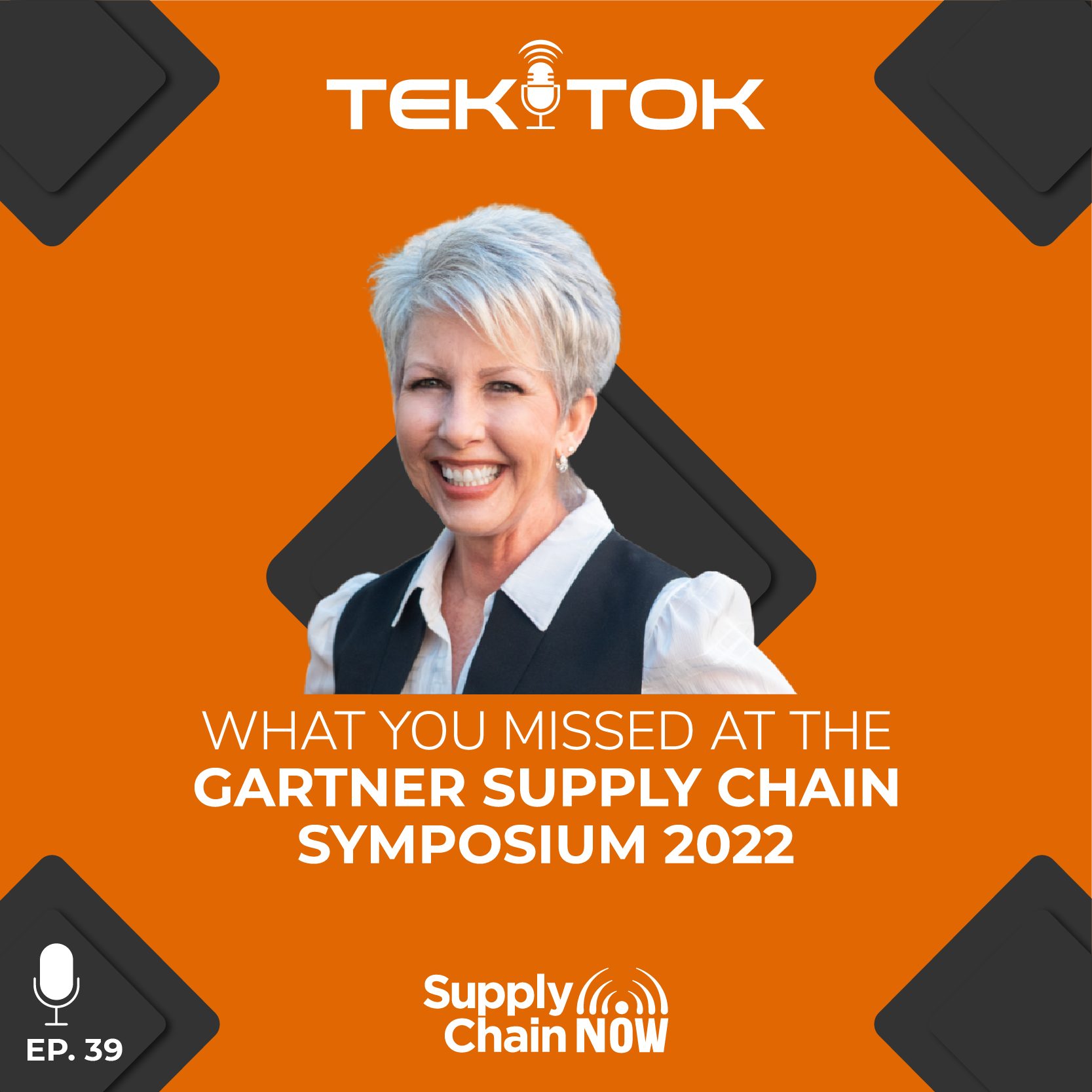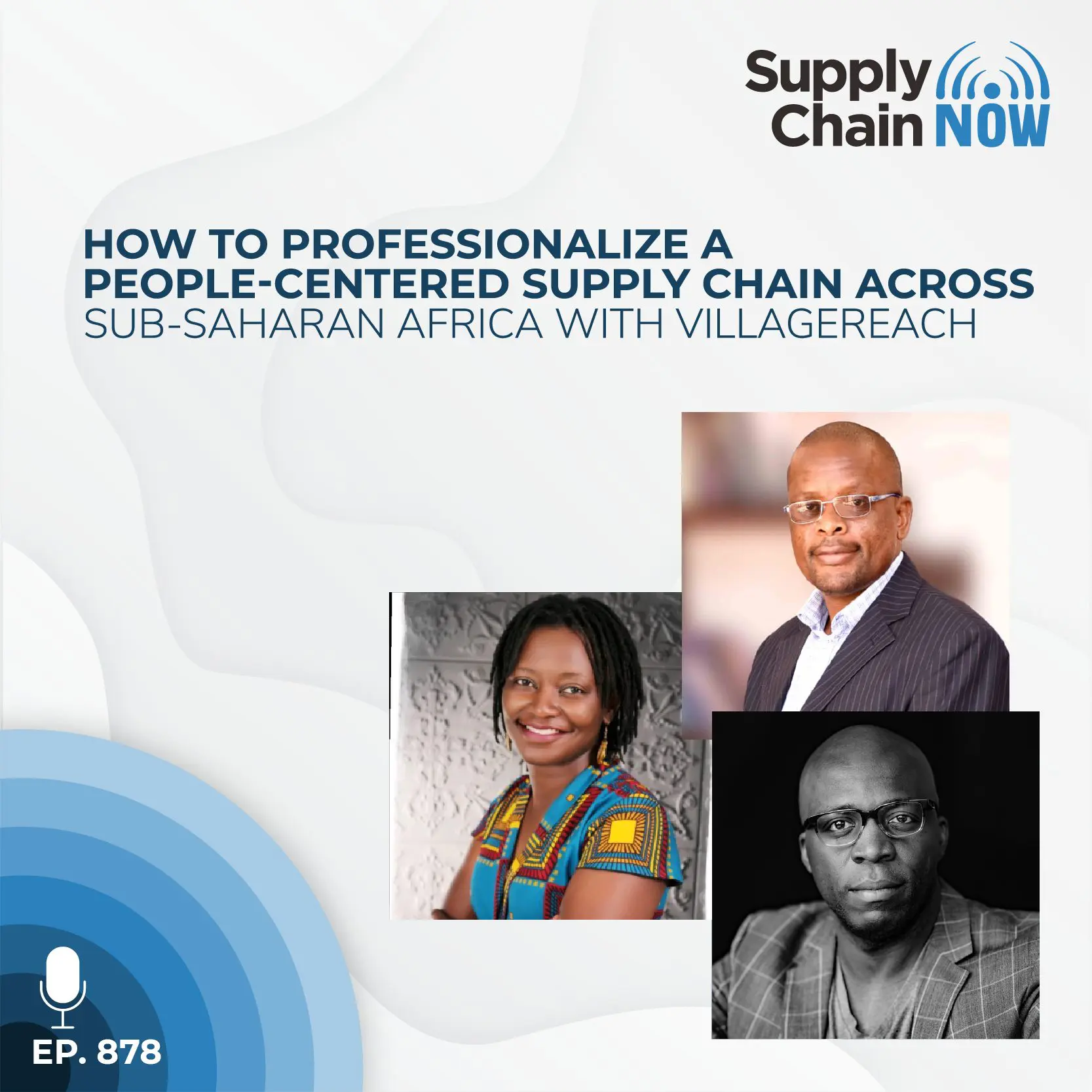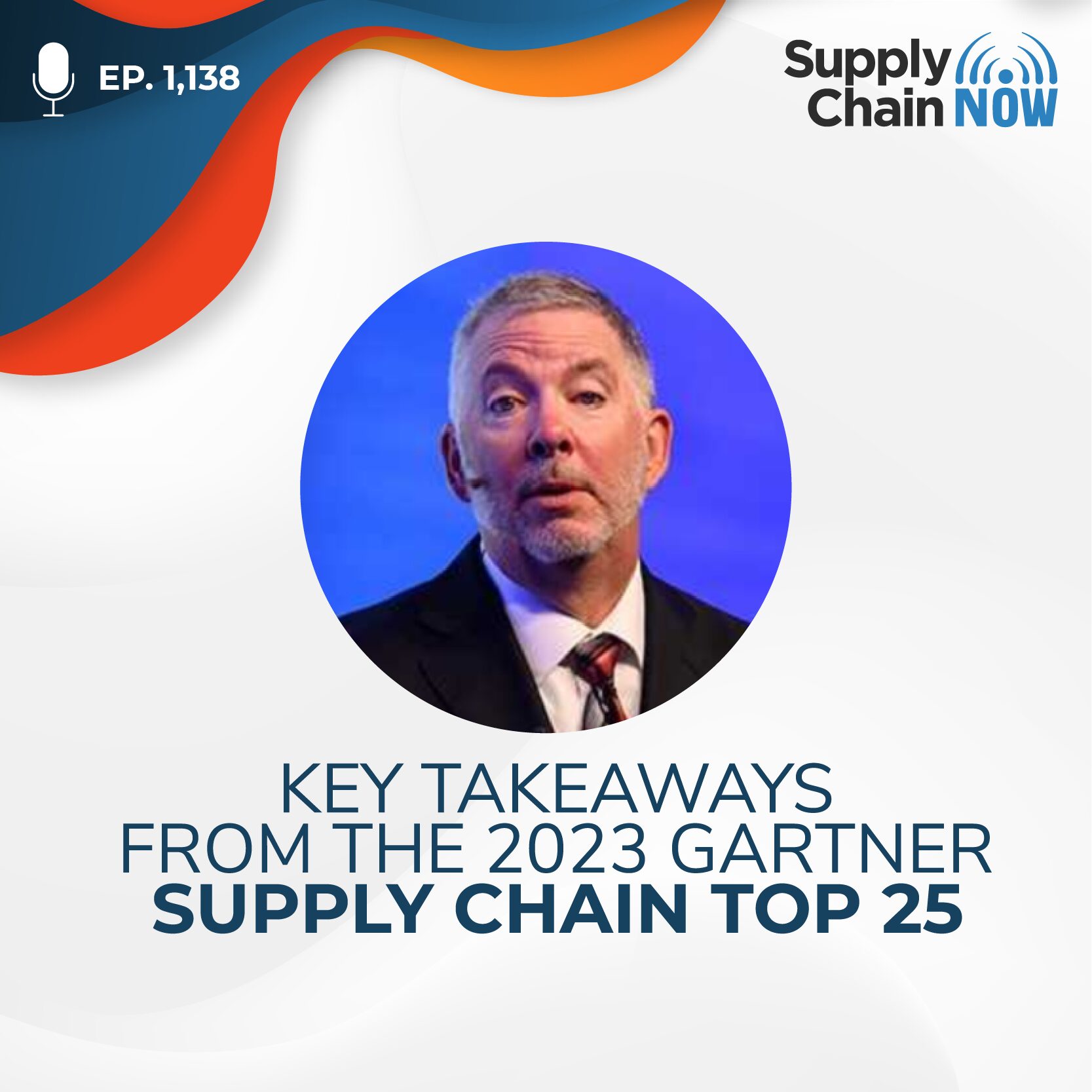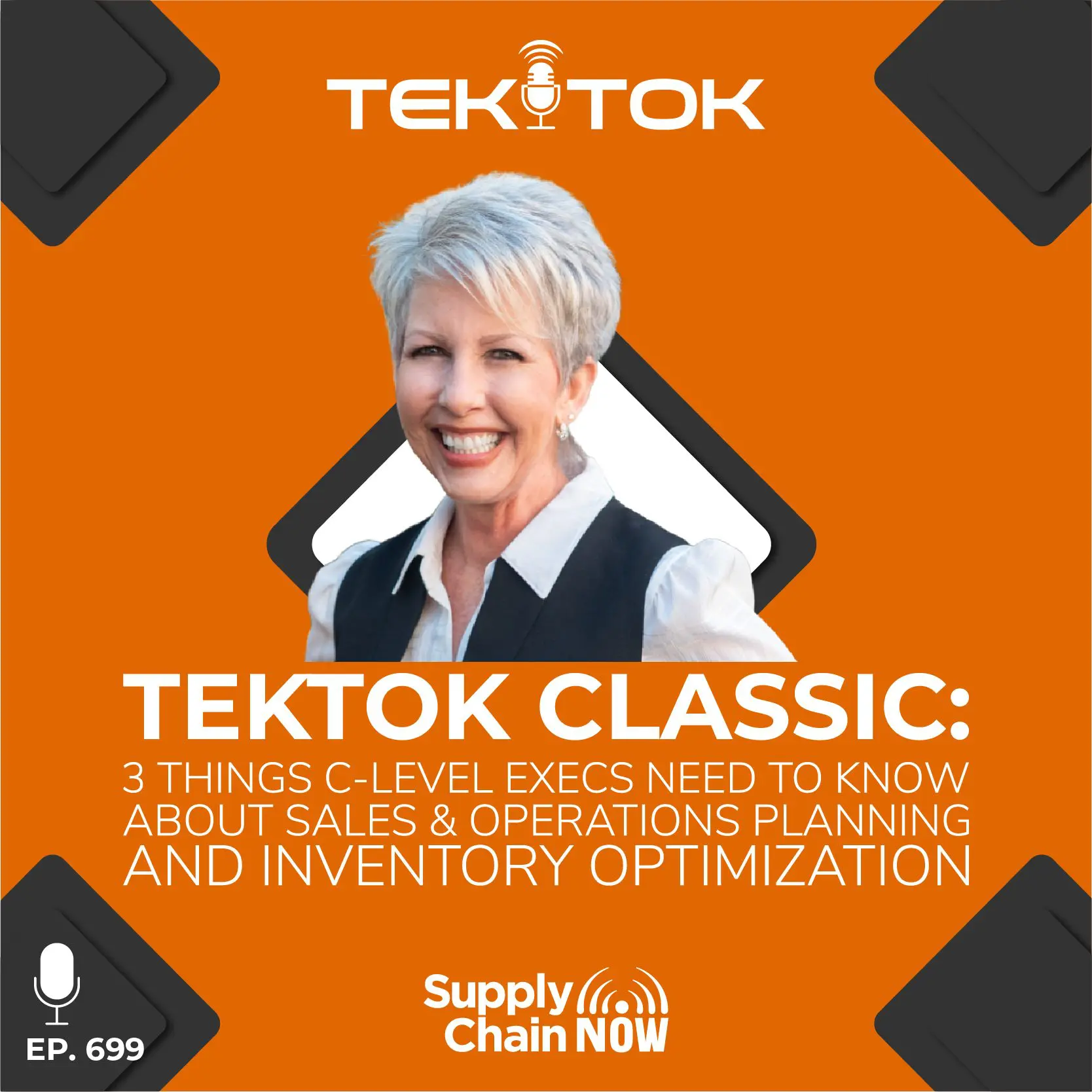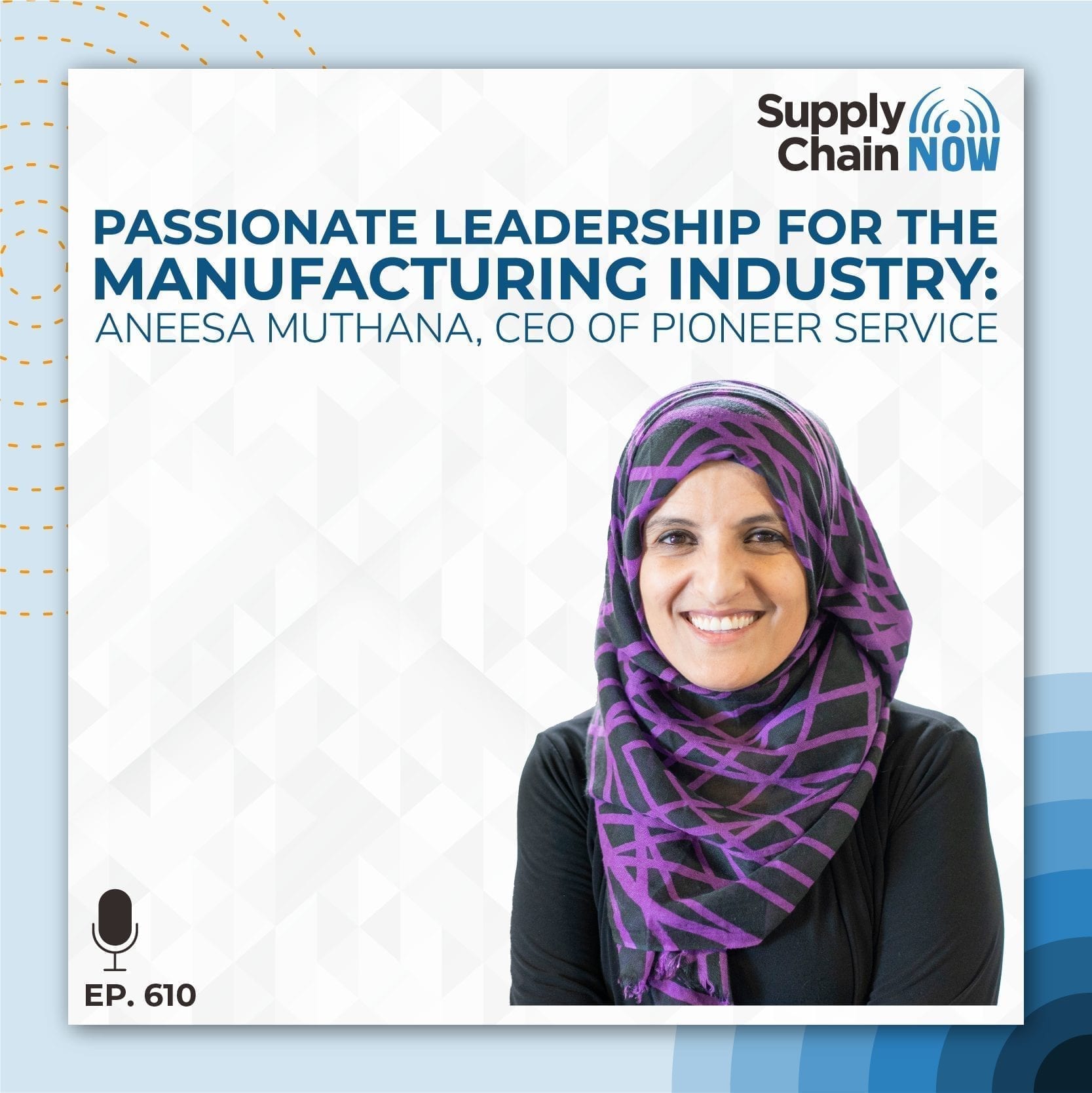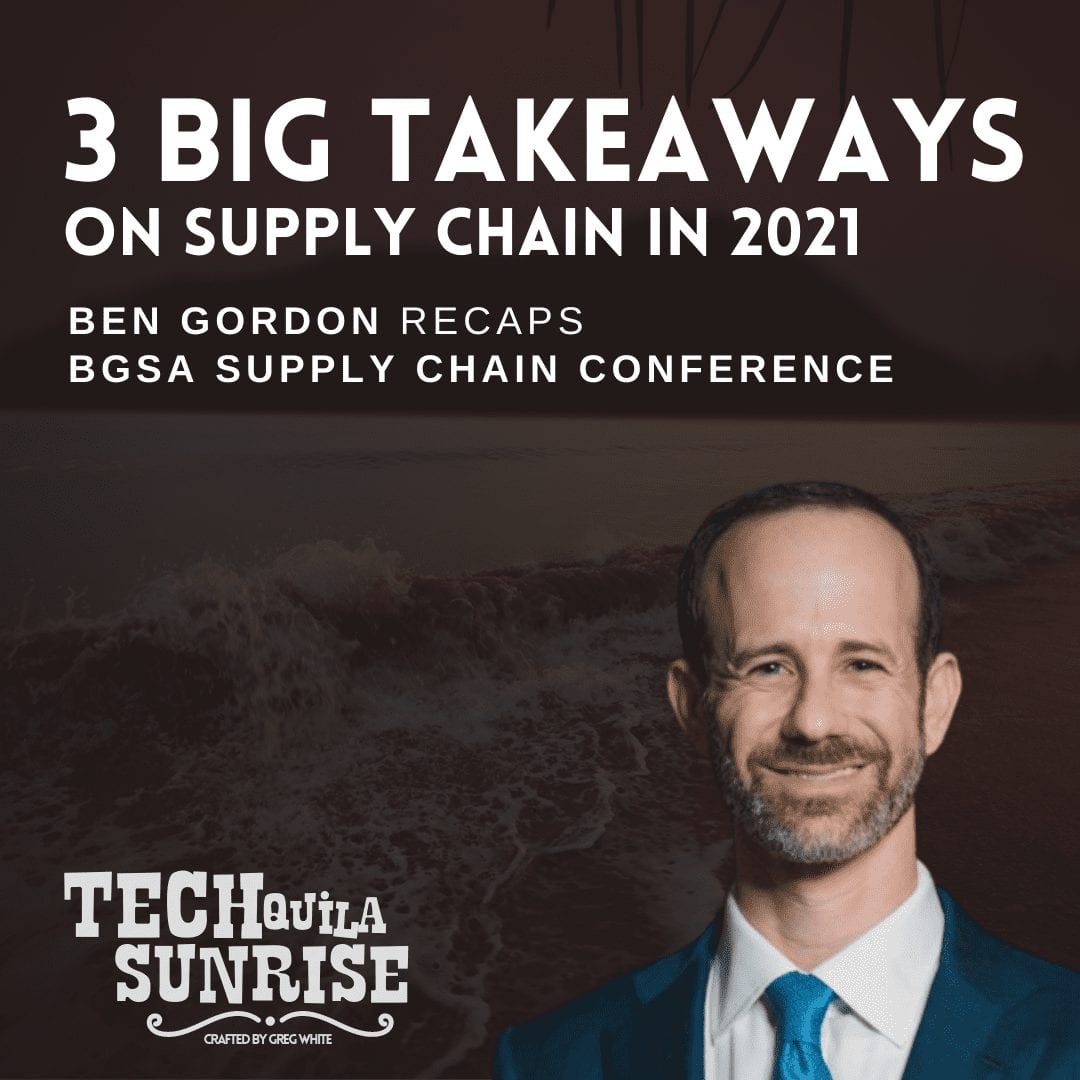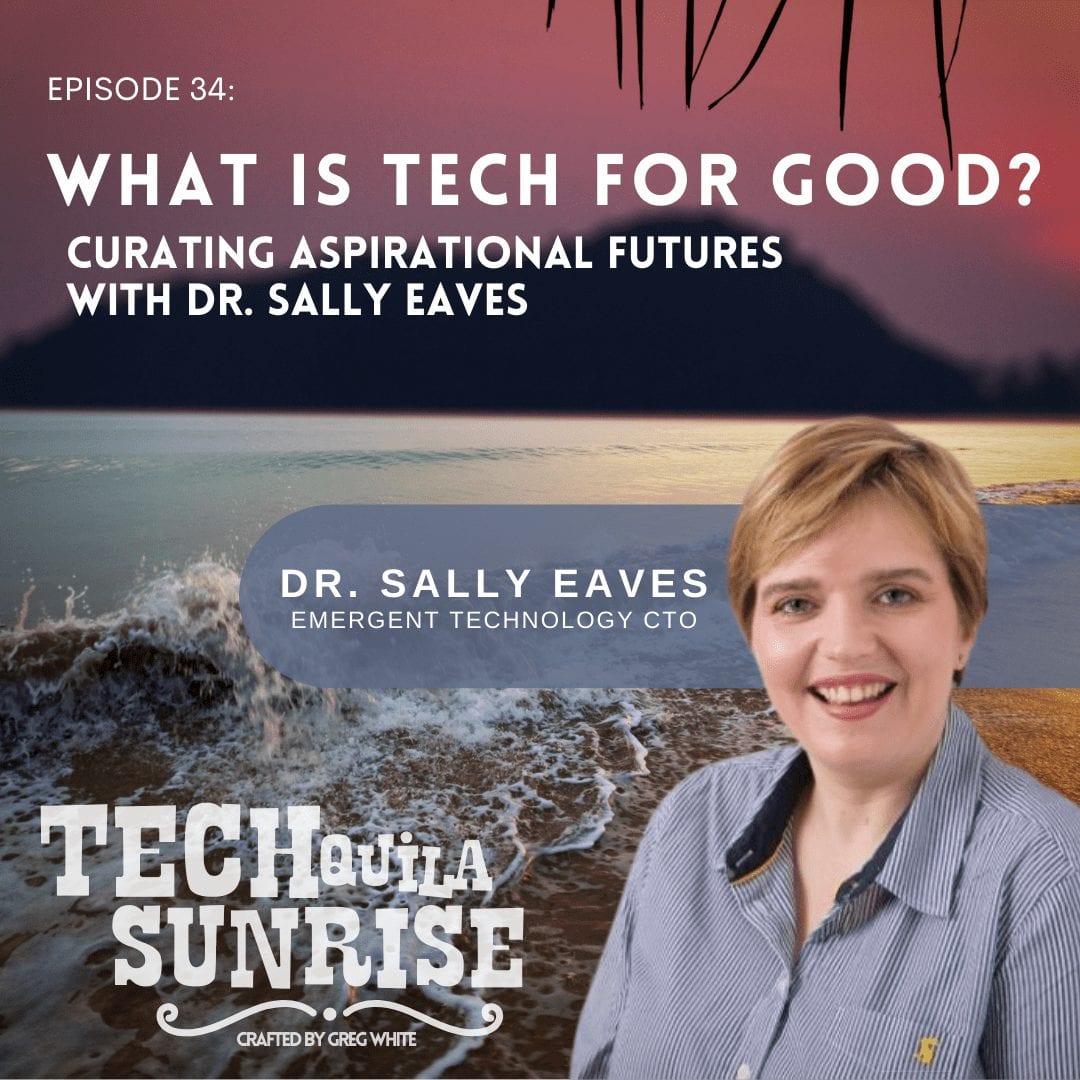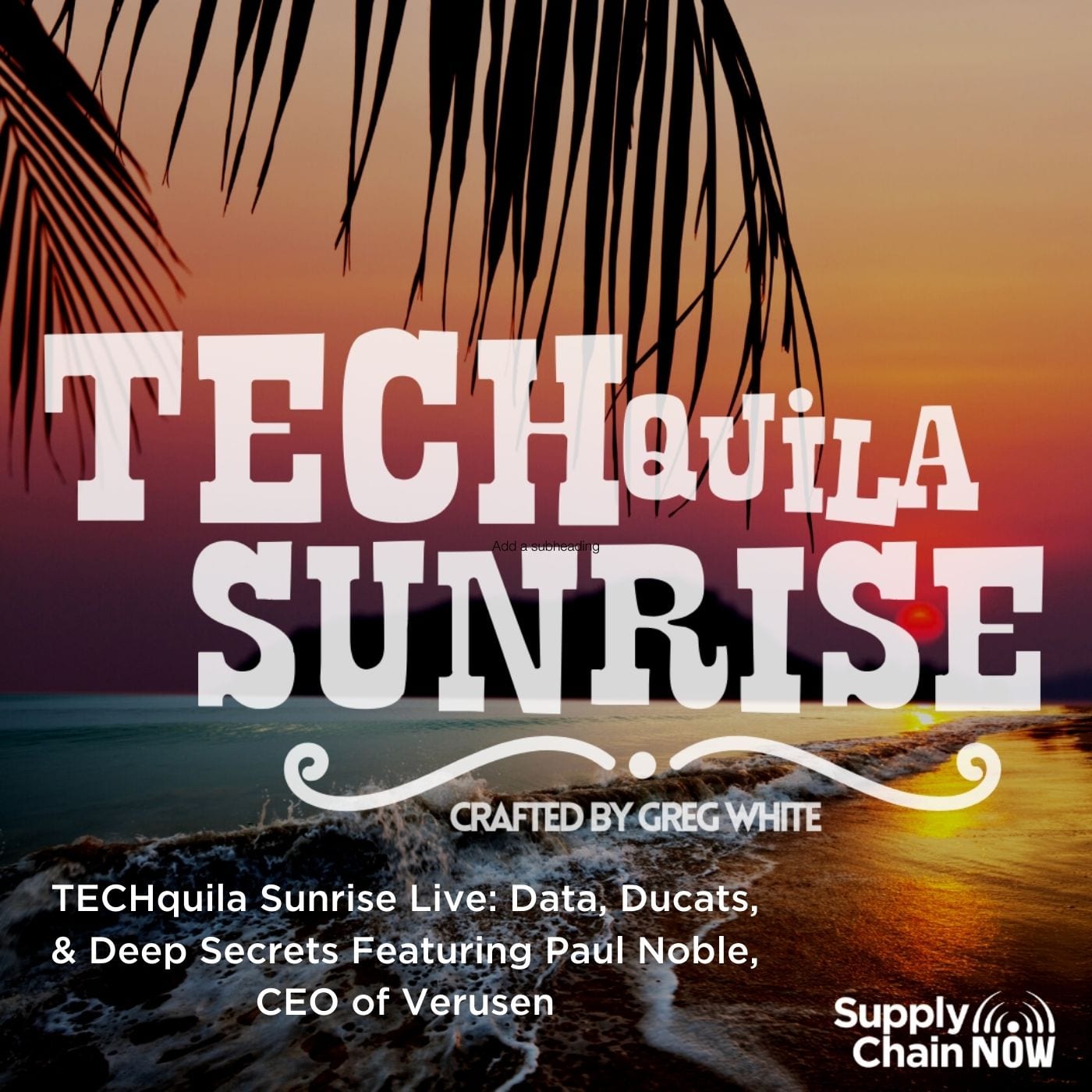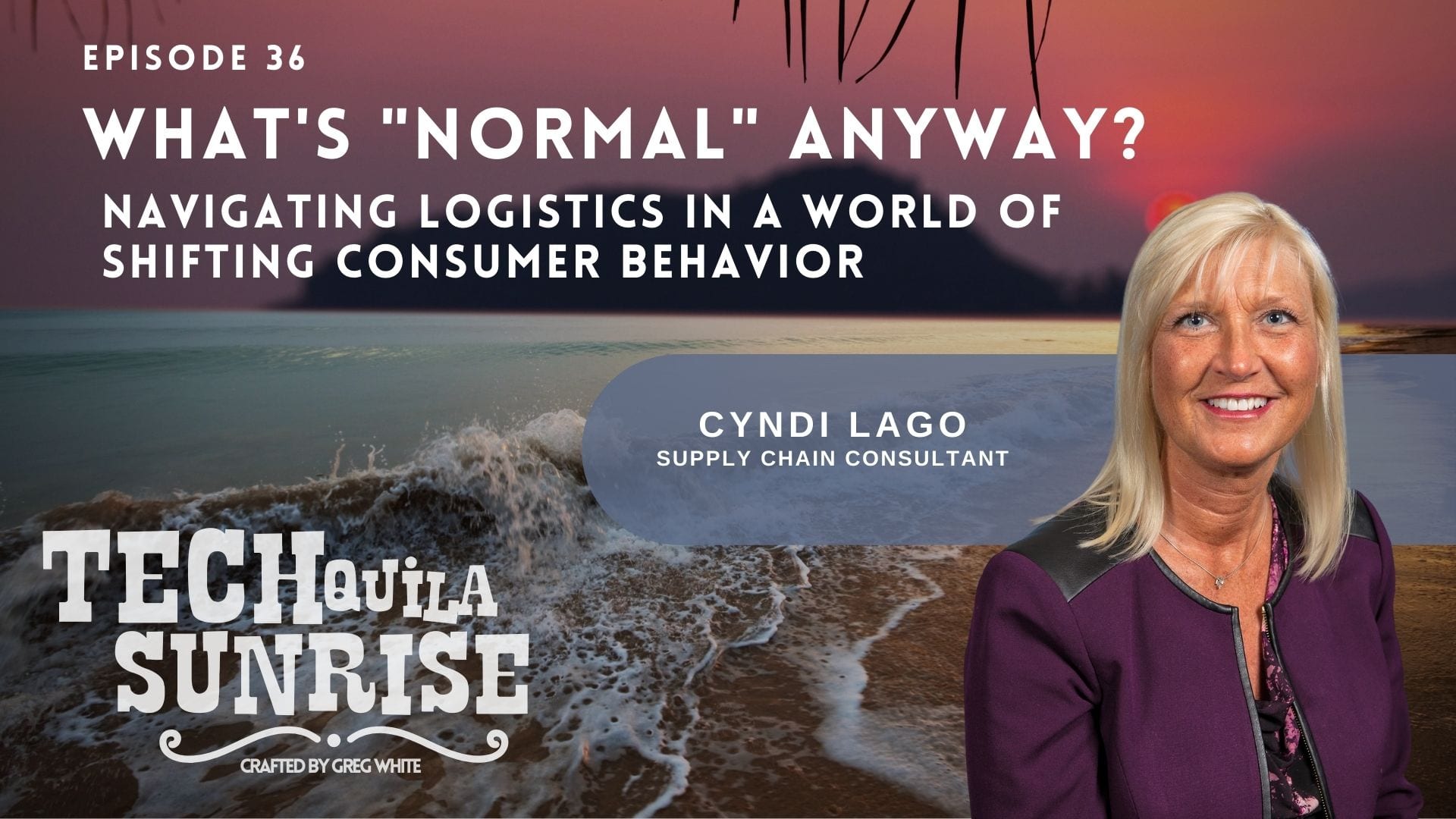
Episode Summary
“This is not about projecting exactly what your sustainable levels are today. It’s more about how you build resiliency, agility and flexibility into your supply chain to deal with the disruptions. How do you use the resources and technology at your disposal and take the weak links out of your supply chain?”
-Cyndi Lago, Supply Chain Consultant
The events of the past year have prompted a rapid shift in consumer behavior, most notably in ecommerce – but what’s the next “new normal” supply chains need to brace for? From dealing with technical debt to making sure your ERP, WMS, TMS and OMS all integrate with one another, it’s less a matter of predicting the future and more a question of engineering flexibility – and resilience – into your logistics processes. And who better to advise than consultant and supply chain technology expert Cyndi Lago? Join us as we chat with Cyndi on the changing world of consumer spending behavior, the importance of strategy when it comes to technology implementation – and a rather fundamental decision she made in the fifth grade.
Episode Transcript
Greg White (00:03):
It’s time to wake up to tequila, sunrise, Greg white here. And I have spent my career starting leading, deploying, and investing in supply chain tech. So we take a shot at talk founders, execs investors and companies in this hot industry. If you want a taste of how tech startup growth and investment has done, join blinding tequila Sentra.
Greg White (00:30):
Hey, welcome to tequila sunrise. I have a special guest here today, and we are going to talk about the changes in globe global commerce and its effect on supply chain and technology. Look, I’ve seen this transition coming in supply chain for quite some time now, but 2020, well at 2020 did and the seismic societal disruption that we experienced accelerated five and 10 year plans to right now in this episode, my guest Cindy Lago. And I, we’re going to give you some valuable insights to help you along your supply chain and technology journey. By the end of this episode, you’ll not only understand the changes and the ramifications of what is going on in the industry now, but you’ll also walk away with some key strategies to position you, to capitalize on a radically changed future. So without further ado, let’s bring in our guests, Cindy Lago, Cindy, first of all, it has been a practitioner and a leader in retail. She even took her turn in logistics and tech as well. So she can give us a lot of insights from a number of vantage points. So thank you for joining us, Cindy, welcome aboard. You’re ready for a shot.
Cyndi Lago (01:45):
Sure, absolutely. Always not really, but that’s a whole different story. Now we’re going to talk about today and from that perspective, but really focused on how to help them drive those solutions and technology that will enable them to, to be able to deal with the disruption they’re seeing. And my, my efforts are much more focused around that area in and across industries. Um, but obviously my, with my experience, consumer products, um, hospitality, retail, those types of things are immune veteran enrich more my strong suit, but have been here. I’m very excited to be here, very excited to for this new opportunity. And before that, as you’ve alluded to, and I’m not going to bore people with my past history, been working throughout the industry and supply chain pretty much after I got out of college. So looking forward to the conversation day, it’s been exciting.
Cyndi Lago (02:40):
It’s exciting for supply chain to be something everybody really realizes. Now I always joke. And you know, my line, which is if it’s not in your hands, it’s not a happy customer and it hasn’t went through a supply chain. So, you know, all the e-commerce people out there who make great websites can make the customer happy if they don’t receive it. So that’s our job. And, you know, I think that seeing what’s going on in the industry, seeing everything that we’ve seen from a disruption perspective and seeing who can adapt and who can’t and how they’re adapting is really important for people to look at and try to help solve.
Greg White (03:18):
So let’s, let’s talk about that a little bit. So you, as you said, your expertise is predominantly from the retail side of things, but retail and distribution and manufacturing and even sourcing they’re so closely tied these days and this disruption hit every aspect of that. I mean, you can hardly, I can’t think of an industry where you haven’t had some level of disruption, either good or bad, and it hasn’t kind of shuttered out throughout the entire industry. So if you think about that, who is really being the most impacted by this change in commerce, people are doing e-commerce more and more. I mean, the rates of e-commerce are up incredibly, but who is most impacted by that? And the ramifications on supply chain in tech,
Cyndi Lago (04:08):
I said, what I would say is at the end of the day, I mean, I think the consumers are being the most impacted. They were the ones that changed their buying habits. You know, I know people think, well, you know, my, my company has been severely impacted, but it’s really not been just that it’s been the consumers and it’s been, how are they dealing with it? And what are they going to do in the future to better, you know, adapt their buying habits and, and how they’re buying and how are you going to react to that is certainly the next piece of it. But I think, you know, understanding that, and, and I think for consumers out there, I don’t know if they’ve realized, but you know, you’re paying for a lot more shipping than you ever paid for in the past. So, and so I do think that the, the whole model from a company perspective is certainly has a huge impact, but because the consumer’s behavior has been forced to change so much, it’s now forcing the companies, but I think it starts with them.
Greg White (05:02):
Yeah, undoubtedly. So if you think about how this has impacted consumers, uh, I’d like to get later to how sustainable you see that being in the future, but where have you been able to from your perch, right? I mean, you were working at a consulting firm before, have you seen a segment of the population? Is it, is it the change greater in the U S and Europe, Africa, wherever, or, you know, can you figure out where this has impacted people the most?
Cyndi Lago (05:37):
I don’t think you really can’t. I think what you do see is it has impacted countries different. I mean, it’s impacted different parts of the world differently, right. And people have taken different. The reason I don’t think you can is because people have taken different stances, right. The way that they’re dealing with them in Europe is very different than the way we deal with it. So I don’t, I, so from what, what I’ve seen in the market, it’s not like you can take those differences. Now. I think there seems to be greened for me to country that they’re and how they’re doing it. And like, for example, I know that a lot of people, the world looked at Asia and to see how Asia was going to recover as they were moving, you know, the movie forward and what was Asia doing. But, you know, certainly I think it just depends on, you know, those individual countries, what their, what their policies are and what their procedures have been to put in place. And, and I think so I think it’s, it’s impacted everybody to an extent the same way, but then they think there there’s very, there’s differences by country as well.
Greg White (06:40):
You know, I think you nailed it and that it is that there is no real universality of impact because it really has to do not even with the pandemic itself, but the response, right? The response by governments or individuals even as to how they decided to treat or act in the face of this thing. And in some countries, the lockdown was much more strict and in some much less strict. And then of course, in the us, again, I think people think of the U S as a country, but it’s, it’s really a collection of 50 different cultures and it was left to the States here. So that even in the U S the impact was dramatically different state by state.
Cyndi Lago (07:21):
Exactly. And the way that each state dealt with it, I mean, you know, look at the school closings, right? Some people are back in school, some people, you know, they’re not, they don’t even know when they’re going to come back, if they’re even gonna go back this year. Right. So it’s just, you know, it’s a very different culture based off of very different, based off the culture, what is the, what is going on from a governmental perspective? So I think it it’s, it is certainly impacted everybody, but to how it’s impacting. I mean, it’s all different in each end, even in your individual families, you know, you know, you meet people that families have been significantly impacted and, and people who, you know, have had family members that had it, but they’re not, as, you know, haven’t had the issues that other people have had. So it’s, it’s a very, as universal as it is, it’s still very personal. And, you know, all of our thoughts, our prayers are with those people that are being impacted by it. For sure. No doubt
Greg White (08:16):
When you look back on the last year or so, I mean, I guess this is how this is when things have accelerated, right. So when you look back on the last year, when you think about all of the possible changes, and certainly in some cases highlighting of frailties in the supply chain or with technology or with business processes, what do you think, what do you think companies are hoping to achieve? Or what pains do you hope, or do you think they’re hoping to Aleve with the changes that they’re making, be those process changes or technology changes, or in some cases, business model changes, what have you seen that is most prominent that people are trying to alleviate or to achieve and capitalize?
Cyndi Lago (09:01):
Well, I think there’s a few different things, right? I think the first is they’re trying to achieve, uh, transparency and visibility throughout their supply chain. Isn’t it? Yeah. Yeah. So they know where stuff’s at. I mean, you know, I’ve been on calls with clients and you hear them say, you know, I can’t even guarantee my customer shipment date because I don’t know what we have and because their supply chains are connected between, you know, between countries or between subsidiaries or brands, you know, they don’t have that visibility they need, or even between the WMS system and the, you know, the ERP systems, right. So they’re not real time. And so that is, that’s definitely something, you know, that is first and foremost on their minds. I think the next part of it is what is that shift me to how I run my business? How do I operate?
Cyndi Lago (09:48):
And that’s when you start thinking about it, you know, what does that do? I have the right OMS, WMS, TMS systems in place, you know, can I actually achieve technically what I need to do to service my customer? And then you have to go through and then look at, you know, planning, how am I planning? Where’s my suppliers, where’s my, where are my raw materials? Where’s everything coming from, and am I going to a, get it on time or B if I’m not going to get it on time, like, how am I going to adjust or have alternate suppliers? You know? So there’s a lot around, you know, that, that component of, and what does that mean to my forecast and my plan and how do you know? And then it goes back to how do I, how do, how it happens if I’m the sales person in an organization, how am I even guaranteeing inventory to a client or being able to sell them?
Cyndi Lago (10:40):
And then you have the, I think one of the anticipated things or unanticipated things is also then the backup that this has cost to get product back to the UX, right? I mean, that’s all you see right now. And, you know, the, the freight magazines is, and, you know, it was all around that backup that is now happened at the ports that they can get stuff processed. So, you know, I think everybody realized it was going to be a backup, but I think one of the components that, and, and I guess, you know, working from home and having meetings with people, you realize it, but you didn’t realize that when you think about the workforce, but one of the components is, you know, now you have to anticipate how many people may be off the, your absentee rates. So it’s not just all this additional flow of product that was, was not coming in from China.
Cyndi Lago (11:28):
That’s now coming in from China, Asia, but then now it’s like, is, do I have the staff? And if I don’t have that staff, do I have enough backup staff, you know, to really support the process and that needs to be done. And the reality of it is, is that, you know, you’re fighting both from a, I need to get this, I couldn’t get it, and now I have it, but, and it usually you’re fighting for the ports and for throughput all the time anyways, but now you have to complication of the labor issues. Do you even have the labor to process it and how, you know, and how much additional hiring do people need to do to compensate for that difference of, you know, not knowing how much labor is now, it’s getting better. Obviously we have the vaccines and everything, you know, we’re reaching a better level of pharmacy, but I don’t think people were expecting or thinking through like some of those downward trends. And so that we’ll get that those things will improve. I think there’s always going to be a level of, you know, resiliency that you have to put into your supply chain now that you didn’t necessarily think about in the past.
Greg White (12:31):
You mentioned a lot there, transparency. It seems like a lot of it comes right back to that transparency, right? But the strength of your processes, uh, the strength and the interconnectivity of your technology logistics constraints, which I don’t think anybody could have foreseen the logistics constraints that we’ve experienced containers, containers shipping across the ocean empty, right. Ships backed up with 57 day delays or whatever they are now. And on the West coast ports, people are rerouting now ships to Texas ports and, and East coast ports just to get things unloaded from China, all of these technologies. So OMS order management, TMS, transportation management, right? So order management makes sure you get the order, transportation management, make sure you move the order WMS, make sure you store the order and pick and pull and receive and ship the orders appropriately. And so many of those things, as you said, they don’t necessarily talk to one another and that you, you sort of lose sight of the flow of goods through all of those disparate systems through this. Right.
Cyndi Lago (13:41):
And then there’s the expectation on the other side that you need to be able to tell the salesperson or their customer, when are they going to get their product. Right. Right. So, you know, now it’s, it’s not, you know, obviously the FedEx and ups and the USBs of the worlds and DHL and all of them have any Amazon themselves, right. Have made a huge impact on the way, you know, their ability to be able to, to inform the, the end customer. So the customers don’t necessarily get that, have that same issue as the manufacturing or they consumer, you know, the, the good people that are ordering to from B2B. But certainly it is a huge impact on the B2B business, from our perspective, being one to, to guarantee that and think about it, you’ve got, you’re ordering parts from five different places in your manufacturer, and you’re just putting them together.
Cyndi Lago (14:33):
Right. So how, how you’re, you know, every day you don’t work a full day shift or your sheet needs, like, if it was just like, if a machine goes down in the factory, how much time and money you lose, it’s the same type of thing. So it’s, it’s definitely causing that disruption and that level of, you know, how much inventory I really need to carry what are really need to do to deliver to the orders that I have in the system. How do I need to reprioritize based off of what I can get and what I can’t get, do I need to add new suppliers? Does my network, is my network designed correctly? Do I have the right model to be able to, to get to my clients effectively? Do I need to build new warehouses? I mean, you see retailers talking about how many new warehouses they’re building and, or hubs they’re putting in place to be able to handle some of this volume from a consumer perspective. But it’s the same thing with businesses too.
Greg White (15:26):
Yeah. I mean, just that, just that dialogue right there makes it sound utterly impossible. Doesn’t it? I mean, if you think about it, it could be very overwhelming for a company that caught on the back foot who didn’t. And there were companies like this who had the combination of not strong processes, complete lack of transparency or some significant lack of transparency and maybe lack, and certainly in a lot of cases, lack of technology. And by the way, I don’t include spreadsheets in technology. Right. I mean, technology that can solve the problem for you, not just obviate it and say, yeah, you got a problem. So I think a lot of companies have a very, very complex road ahead of them. And I’m curious as you think, you know, your job for the last several years has been to help companies tech up to, you know, to deploy technology, to, and to change processes and to enable their people better, to help them solve this problem.
Greg White (16:24):
And as you said, it wasn’t that long ago when we sat around the dinner table with our family and they didn’t know what supply chain was. And it was really hard to explain. Now you have to say is you either get your toilet paper or you don’t that’s the supply chain. Right. So, right. So if you think about it from that perspective, if you think about, you know, some companies have been caught, so flat-footed some have been actually put out of business, others have been significantly hamstrung others have had to shift their business model and either been able to, or not able to, or in some measure, somewhat able to, when you think about that and in your role as, as deploying technology, as an enabler of people and processes, what do you think is the most important? What do you think is important for companies to think about as they adapt to a new business model and, or adopt technology?
Cyndi Lago (17:19):
Well, I think first of all, they need to make sure they have what their strategies and align on them. Because, you know, in some cases your strategy needs to be different based off of your customers. And so, you know, I think that understanding what is the strategy of the company to deliver the product to their consumer or their in client and based off of that strategy, how do I need to bring in technology to enable that? And where are the pain points that I have in my, my system today and where are my limitations and then prioritize desertion of those limitations and how do I attack them? And, you know, and then you have to understand what the dependencies are because maybe something has to be attacked in for something else, or, you know, some things are quick kids, so you can, can take care of it first, but, you know, it’s, it’s really, you know, it’s really easy to want to throw everything up against the wall to try to figure out how I can fix this.
Cyndi Lago (18:17):
It’s harder to say, how do I fix it and in accordance with my strategy and that’s how it needs to be fixed because long-term, you still are going to have the, you know, your business strategy and what is my business strategy three to five years from now and what do I need to be and who do I want? And I think that is really, you know, what you have to do. And then, you know, you gotta look at what it needs to be enabled to make that happen. What do I have today? What do I not have? What do I need to grow? And what, what’s it going to take to improve what I have in place? And it’s, you know, it’s, it’s, it’s that, it’s that realization of walking it through from a perspective of, you know, those, those baby steps, if you will, right. Of, of how to do it, because, you know, and then you have to think about enjoying to start a Greenfield implementation. Do I need to do a brownfield implementation? Is it totally just, you know, I’m just going to keep the system I have, but I’m going to upgrade it. And there’s implementation sometimes. Cause Brown
Greg White (19:22):
Difference between Greenfield and brownfield, just out of curiosity,
Cyndi Lago (19:26):
Brand new freight everything’s brand new brownfield is more of a combination of not being brand new and being brand new. So maybe it’s brownfield being that it’s new to some people, um, you’re keeping some of the things you do, but you’re not getting all of the things you do, you know, things like that. So, but it’s yeah, but go ahead.
Greg White (19:45):
Well, I was just going to say, I can see that happening and I think we’ve both seen that happening. Well, I speculate you’ll you can confirm or refute, but seeing that happening quite a bit where people are because it’s expensive and it’s risky, they’re not replacing ERP as often as they used to be. And now they’re finding new ways to layer this Greenfield tech on top of a weak spot in their ERP. WMS is a great example. I think forecasting, planning, allocation, replen, replenishment, all of that. Those are great examples. SNOP are often good examples. I don’t know, but you know, there’s lots of ways to, to let an ERP do what it’s really good at which mostly finance and then layer on some of those other technologies. Are you seeing companies do more of that?
Cyndi Lago (20:33):
Oh, absolutely. We’re completely, you know, the, the day of one ERP being able to handle everything to solve all your problems is, is not where we’re at. That’s what I’m saying, that you don’t have a system ERP system that has additional tools, the same toolbox that can’t handle it alone. But what it is saying is that, you know, they’re, they’re realizing that not every, not all swept all, not all one size fits. All right. So, and that’s okay. It’s just, how do you, you know, you have, but you know, in that go back to your strategy, right. Then now you have to also consider your technical debt. What do I have is technical debt? Where, where can I, you know, move things to the cloud? Where can I become more efficient? Where can I work? Can I not touch? So, you know, once you set your strategy and then you need to look at technology where you’re at your processes, where you’re at your pain points and then start making, you know, decisions from an executive perspective of what that, you know, what is my business case? What is my roadmap look like? What is my ongoing technology strategy to enable what I’m trying to achieve? And that’s really, you know, it’s, it’s definitely, um, a lot to consume, but at the same time, you know, you, you need to make the right choices because time is of the essence, right? I mean, it really is. It is
Greg White (21:51):
So undoubtedly you’re right. I mean, I think I was just thinking if that statement was ever more appropriate. I can’t imagine when it would be, you know, I’ve, I’ve said several times, starting early in this seismic societal disruption, if you built your house on sand and you have somehow managed to survive this flood, don’t be foolish enough to continue to do that right. To continue to leave it on spanned. And, and I think that good processes and real technology, not spreadsheets and strategy driven business model changes. I think those are really, really key to creating a solid foundation for your car.
Cyndi Lago (22:31):
Right? Absolutely. I think those are great takeaways from this, but for sure when, if ever
Greg White (22:38):
We talk a lot about, of course we can’t have any conversation where we don’t say AIOt, uh, pivot unprecedented or new normal. So when, if ever, do you think we’ll settle into something that we can call normal? I mean, I, I don’t think we’ll ever go back to where we were, where for instance e-commerce is a much, much bigger portion of retail sales than it was. I think both of us and many people in the know knew that that was coming new. Right,
Cyndi Lago (23:09):
Right. But not to this, not this fast
Greg White (23:11):
And not now, but, but do you think we sustain the level of e-commerce we’re at, for instance, or are there other things that you think that kind of settle out or settle down as we reach some level of market equilibrium market and societal equilibrium?
Cyndi Lago (23:27):
So, I mean, I think that the obvious thing is, is that, that there is a, a shift on spending that has to go back to really become the new normal meaning people are traveling people aren’t still eating out as much. They, so their disposable income is not being spent where it will ultimately be spent once we level out. And so I do think that there is a, a level of behavior that from a re from my buying perspective, that will continue do, I think it’s going to continue to see, you know, you’re gonna just continue to see the increases that you see, probably not, as it’s shifting, you know, they’re going to shift their, their money’s back to travel or vacations, or, you know, whatever that case may be. I mean, there’s going to be so disposable, income’s going to be spent differently. I don’t think it’ll ever reach the same levels as it was spent before, but I think it’s going to be spent differently than it is being spent right now. Right. So that’s a given just because people can’t spend it on what they want to spend it on, you know, like, you know, so I don’t know about you, but I really would like to get on a plane and go somewhere. But, um, you know, so
Greg White (24:39):
I imagine the airports being more crowded,
Cyndi Lago (24:42):
I mean, they’re, they are getting busier, but yeah. Right. But you know, it’s, I mean, the reality of it is, is that people, you know, people are entirely depend up and they are getting busier and the airlines are doing a tremendous job at keeping people safe and healthy and all of that. So not discrediting any of that. Oh, I’m saying, is that the shifted, the spending is going to go back to some level difference than what it is today. So, you know, like, you’re not thinking you can’t build, you know, you just, you can’t also build your house on false hopes that, you know, you’re, you don’t, you know, it’s sorta like, it’s sort of like, you have to build it to a level of normal, but you also have to sell your like retailers when they have the Christmas period. Right. You can’t have the systems and, and, and enable yourself to run at Christmas, picks all the time, when, not when 10 months out of the year, and you’ll never have those lungs. Right. You have to figure out what is the strategy to get me through those peaks, but how do I reach that sustainable normal level?
Greg White (25:40):
Yeah. You have, you have to be, I think I see a lot of temporary peaks, bubbles, whatever you want to call them coming there will undoubtedly be a bubble in travel, you know, in hospitality and those sorts of things. So I think if you have to be adaptable and there was another word that I was thinking of, but you know, you have to be agile. Right.
Cyndi Lago (26:02):
Yeah. Right, right. Right. I mean, I think that’s, those are the takeaways that you need to take away from this. This is not about today to project exactly what your sustainable levels are, but it’s more about how do you build in resiliency, agility, and flexibility into your supply chain to deal with the disruptions. It’s not about how you live to the new levels of normal, because we don’t know what those are yet. And in some cases they may never get back to where they were at, but it is definitely how do you use those resources and technology at your disposal or things that you’re looking to do that will you to build a flexible agile and, um, resilient supply chain, right. Yeah. So, you know, and in some cases where, and I just read this the other day, and I don’t remember where I read it up, but, you know, it’s like, how can you take links out of your supply chain?
Cyndi Lago (27:01):
Can you shorten your supply chain? So how do you, how do you do that? Right? I mean, so it’s, it’s definitely things that you need to think about, but, you know, you have to put that in context of the normalcy is going to continue to change because right behind this and right behind the pandemic and, and still, and still on the top of consumer’s minds in customers’ minds is this whole feeling around being green and being environmentally friendly and being, you know, better for the, you know, the, we still continue to see the consumer being concerned about the environment and can be concerned about being, you know, all the things around that that are important. So you can’t just change for one thing
Greg White (27:49):
And human rights, all of those things have come to the fore. Right. I mentioned earlier, there’s so much transparency, not just in supply chain, but in the world. And I think we’ll have time to sit down and study this for a few months, at least at the beginning, some more, but at the beginning
Cyndi Lago (28:06):
I saw the reduction. Right. I mean, think about the grade, the reduction you’ve seen in emissions. Right. Right. Like how can we sustain that now? Yeah. So that sustainability is, is something that, you know, there, you know, there’s always the reason that you need to think about it as agile, flexible and resilient is because it’s always going to have something coming up to, to challenge you. And yes, it’s not going to be as seismic as you say, hopefully as what we’re experiencing now, but there will always be something that comes up to challenge.
Greg White (28:36):
I think that that’s really well said, you know, new awareness, new capabilities, new freedoms, if you will, we’re going to breed new peaks and bubbles and changes and shifts and, and right. I mean, yeah. I think that’s, that is a, that’s a great observation. So yeah, I think that’s really important. I mean, is there anything else, anything that’s kind of top of mind that you just think needs to be heard or, you know, anything we haven’t talked about here that you think ought to be going forward? Right.
Cyndi Lago (29:17):
Right. Well, I mean, I think there’s the whole workforce, right? We talked about that. We talked a little bit about the labor differences in shortages and you have to think about, but there’s also the whole workforce. The workforce population is changing. And we, as people that have been in the industry for awhile, unfortunately we all have personal anyways. You know, so I do think that, you know, we also have to realize that people are working differently. They’re working from home. They’re not going to all go back to the office. There’s going to be different ways of working in different ways of doing business. And so back to the conversation we just had around, you know, what you need to build into your supply chain, you also need to think about your organization that you did that you’re putting in structure around it, because I don’t think it’s going to stay, you know, it’s also be in changing as well. Yeah.
Greg White (30:07):
Yeah. That’s a really good point. I mean, I think if there was anything, we didn’t think too much about it was workforce. I mean, think about how early in shift. Right. People were like, Oh yeah, we can only have half as many people in the factory now. Right,
Cyndi Lago (30:22):
Right. Right.
Greg White (30:24):
And like you say, I think some people, and we talked about this a little bit before the show. Some people, they don’t want to work five days a week. They don’t want to travel. They don’t want to commute. I almost forgot the term. I haven’t done it in, so they don’t want to commute five days a week to the office. They want that flexibility. And then we’ve proven that that flexibility can be if managed right. Can be very productive, even more productive than an office environment, depending on the role. Right. Right. Yeah. And you know, what’s interesting about all of this is I think you and I have worked in environments where it wasn’t really news to us, this, what was news to me at least was that other people didn’t recognize this, that people were so caught up in a very specific paradigm, a very specific viewpoint on the world that they didn’t even think about the possibility that somebody could work from home or work a flexible schedule like that.
Greg White (31:21):
So yeah, that, and that, and now I’m even more astounded when I think about people who are just trying to rush their people back into the office, back into the old way of doing things. And I was talking to a recruiter the other day who said, yeah, yeah. I can’t place people at companies that require you to be in the office anymore. There has to be some level of flexibility. And I think that will be an awakening right. Causing yet another seismic shift in commercial real estate. Right? So there are lots of things to consider, but I think your points, agility and flexibility and resiliency are critical going forward. Right? So if, if there’s anything that folks should take away from this, right? These three, these three things down Cindy said, right, your supply chain and your business at large, and your corporate strategy need to be agile.
Greg White (32:16):
They need to be flexible and they need to have resiliency built in, like you said, taking links out of the supply chain that adds resiliency, fewer potential points of failure. All of those things are really critical because as we experienced these changes going forward, they will create, again, more of these bubbles, more of these changes and shifts that that may or may not go back normal or may go back to some level approaching the previous norm, but they will certainly cause potential disruption in the meantime. Absolutely so, well, I really appreciate that. Thank you for that insight. You’re doing pretty good for someone who just got a new job.
Cyndi Lago (32:55):
I try, I try. I’ve been in the business for a couple of decades now. We’re not first gen, but just that part. Right. Well,
Greg White (33:06):
Big, thanks to you. I appreciate it. I always love talking to you. It’s refreshing, it’s entertaining. And, and I’m really excited for you because you got big things coming in this new gig. Right. And I think while it’s, it’s a similar type role to what you were doing before, it’s a different perspective, a different company. I’m interested to see how that changes your perspective on things and what you can do now, right. With the experience that you have in this new environment. So that’ll be fun. And I’m also certain you’re going to be really busy because how can cause, you know, you have new contact information in that week as well. So how can our community connect with you? How do you prefer?
Cyndi Lago (33:49):
Yeah. So there’s a few different ways connecting these with LinkedIn is always the best.
Greg White (33:54):
Cindy has, has the most unique spelling of Cindy I’ve ever seen C Y N D I right. It’s like your parents were dyslexic or no. Right. Okay. Which is the way most people get named Cindy. Yes. Right. And makes perfect sense. Yes. Your family very logical.
Cyndi Lago (34:16):
Well in fifth grade when I changed it, yes. I made very good sense to me. Yes. I changed it.
Greg White (34:24):
Okay. Wow. In fifth grade,
Cyndi Lago (34:27):
Yes. I decided that we were spelling it differently. Yes.
Greg White (34:31):
And I mean, okay, so this is okay. Let’s we got to come back to this. So you and your parents went down and legally changed your name.
Cyndi Lago (34:38):
Oh, okay.
Greg White (34:39):
But then bill Cindy is the way you want it spelled. Yes. Dig it in fifth grade. That’s pretty cool. Okay. That explains a lot, Cindy.
Cyndi Lago (34:49):
Yeah. That, that, and I can add that in my first sentence was I can do it myself as yes. Those two things are explained a lot.
Greg White (34:58):
Cindy and I actually did an interview some while back talking about her career and things like that. So maybe we’ll, maybe we’ll splash a little bit of that. And you’re one of my favorite people. You’re one of my top leaders in supply chain of any of any gender. And, and I think, I think what you’re doing is really cool. And I think people should hear more about your story. So maybe.
Cyndi Lago (35:23):
All right. Well,
Greg White (35:25):
Yeah. Thank you. I appreciate you joining me. It’s awesome. If you want to learn more about Cindy and what she’s doing these days, you can of course go to our site, uh, supply chain now.com/tequila. Hyphen sunrise. You can search her out there. We got our whole new bio there and look, of course, go follow her on LinkedIn, probably Instagram. I happened to know that she’s near the ocean now, but I don’t, I don’t know. You don’t post about like beach stuff or anything to you? No. Okay. Darn it. Okay. All right. Well, thank you. Thank you. No, seriously. I’m so glad we did this. I think this is, this is a particularly valuable takeaway because it’s not often that we get to talk about technology and sprinkle in that the human impact. And I think here we have also uncovered the need to remain flexible and agile and resilient.
Greg White (36:20):
As you said, it ain’t over yet folks. So don’t think just because you have changed things, even in your organization, you need to change them foundationally, not just the tech, but you need to make sure that that tech and those processes, that your strategy and all of your interactions are agile, flexible, and resilient because things are going to hit you again. All right. So let me go have a good day. All right. Thanks Cindy. Hey look, whether you are a founder and investor or a practitioner, I can help you with your supply chain technology journey. So connect with me on me on LinkedIn, uh, connect with Cindy, for sure. But if you want connect with me or you can reach me@gregatberra.vc, K U B E R a dot PC. Uh, and we’ll talk about how I can help you. And remember, this is the rule that I live by be willing to acknowledge reality, but never be bound by it. Thank you,
Greg White (37:23):
Tequila, sunrise, as part of the supply chain, now network the voice of supply chain featuring the people technologies best practices, key issues in the industry. And Hey, listen up to build your supply chain knowledge. Listen to get this supply chain is boring or Chris bonds connection to the who’s, who that got supply chain, where we are point as to where we’re going and take us to the next level or check out this week in business history with supply chain now’s own Scott Luton to learn more about everyday things you may take for granted and pick up quick insights you can use as inspiration and conversation starters. I logistics with purpose series puts a spotlight on inspiring and successful organizations that give first give forward as their business model. If you’re interested in transportation, freight and logistics, have a listen to the logistics and beyond series with the adapt and thrive mindset, Sherpa Jayman Alvidrez and also check out the tech talk hosted by industry bet and Atlanta zone Kerryn bursa supply chain pro to no of 2020, where Korean discusses the people, processes and technology of digital supply chain for sponsorship information on tequila, sunrise, or any supply chain.
Greg White (38:41):
Now show DM me on Twitter or instagram@gregoryswhiteoremailmeatgregatsupplychainnow.com. Thanks again for spending your time with me and remember acknowledge reality, but never be bound by it.
Featured Guests
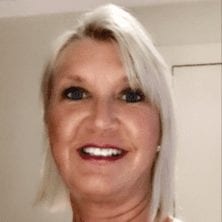
Cyndi Lago is a supply chain consultant and has helped large, complex organizations in multiple industries digitally transform supply chain operations in areas including demand planning, order management, master data management, and analytics. In prior roles, Cyndi helped some of the world’s largest consumer-products companies in their efforts to develop innovative solutions that realize business value through technology. Cyndi’s perspectives have appeared in numerous industry publications including Industry Week, Environmental Leader, Supply Chain World, and Apparel Magazine. Connect with Cyndi on LinkedIn.
